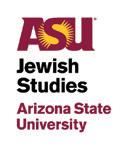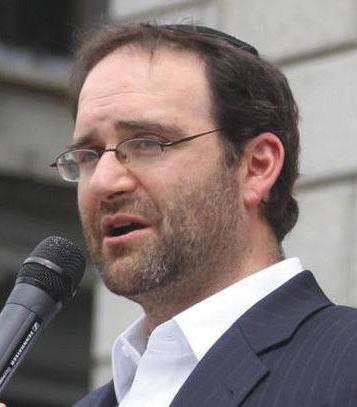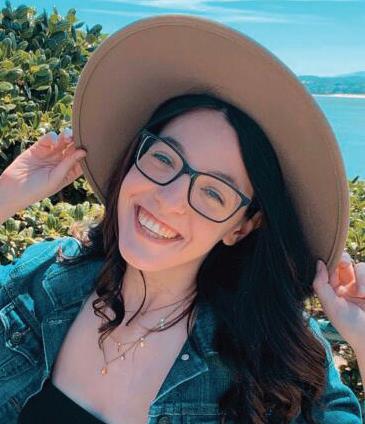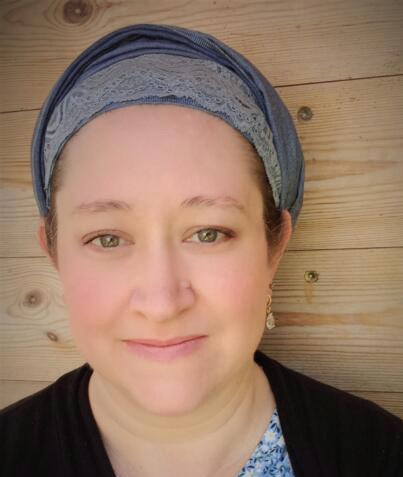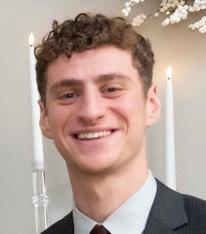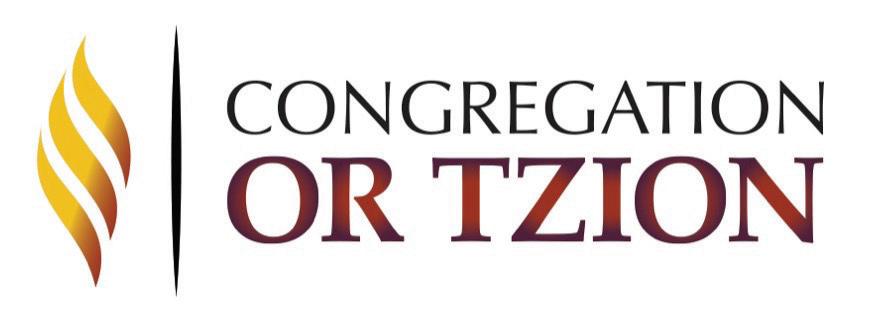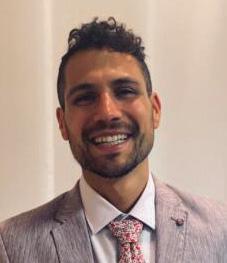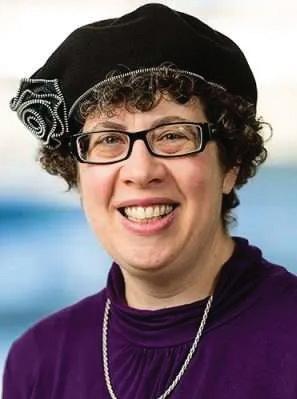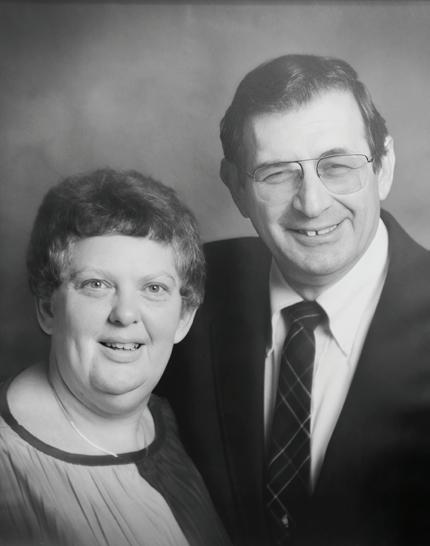
SIERRA VISTA SHINES
Sierra Vista Public Library hosted “Walk with Holocaust Survivors” exhibit
SAGE ADVICE
Nancy and Bob Kravetz share tips on ‘a successful and healthy marriage’



Sierra Vista Public Library hosted “Walk with Holocaust Survivors” exhibit
Nancy and Bob Kravetz share tips on ‘a successful and healthy marriage’

SHANNON LEVITT | STAFF WRITER
Temple Emanuel of Tempe welcomed Rabbi Jonathan Biatch, its interim spiritual leader, at the beginning of July. The recently retired Madison, Wisconsin rabbi officially ended his time at Temple Beth El before moving to Arizona to take up his new, albeit temporary, post following the departure of Rabbi Cookie Lea Olshein. As it happens, his wife is also serving as an interim rabbi for a synagogue in Kenosha, Wisconsin, not far from their old home.
As Biatch neared retirement, he realized he was simply not ready to stop working, and an interim pulpit seemed like the perfect way to keep doing the work he loves without a long-term commitment, he told Jewish News. In Tempe, he will likely discover both the benefits and liabilities of leading a Jewish community on an interim basis. Should this year go well, he will probably pursue more such opportunities with his family.
“I really like working and I like what I do,” Biatch said. “This is a challenging profession, and doing it on an interim basis gives you a different look into how a community is ready, or is readying itself, for its next settled rabbi. That’s the challenge.”
Arnold Bedak, Emanuel’s president, also started his role in July. So far, the transition has gone very well, he told Jewish News.
“We’re excited to have Rabbi Jonathan, and he’s brought great energy to our community,” he said. “We know he’s the interim rabbi, but we’ve really embraced
SEE TEMPE, PAGE 2
On Wednesday, Oct. 23, the Maricopa County Board of Supervisors announced that it had approved funding for the new Hilton Family Holocaust Education Center, bringing the total amount raised to more than $35 million for a $40 million campaign.
Maricopa County Board of Supervisors Vice Chairman Thomas Galvin, who has been vocal about his concerns over rising antisemitism in the country and state, allocated $2 million from his portion of the Maricopa County Community Solutions to the center.

“The Holocaust was an atrocity, and it is important that we teach our children, and future generations, about what occurred to make sure it never happens again,” said Galvin in a press release.
Each county supervisor is allowed a certain amount of Community Solutions Funding each year. The individual chooses to direct funds to the project, or projects, that he or she believes will advance Maricopa County’s strategic goals, as well as provide a benefit to the public.

A grand jury indicted Jeffrey Michael Kelly who was arrested for his involvement in four separate incidents of political violence. See page 6.


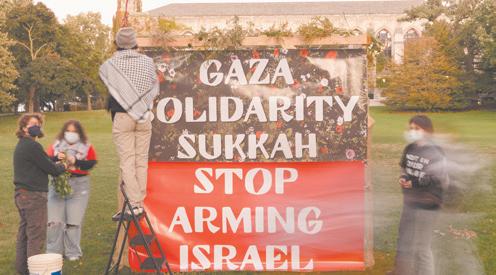
him as our leader.”
An interim rabbi gives the community time to reassess before hiring a permanent spiritual leader.
“Having a gap year is a good way to step back, take inventory and look at what’s really important to our congregation,” he said.
Before taking the leap to an interim position, Biatch talked to rabbinic colleagues and was given some sage advice. Probably the most important piece was not to make any radical changes.
January 6
January 20
January 6
February 3
January 20
February 17
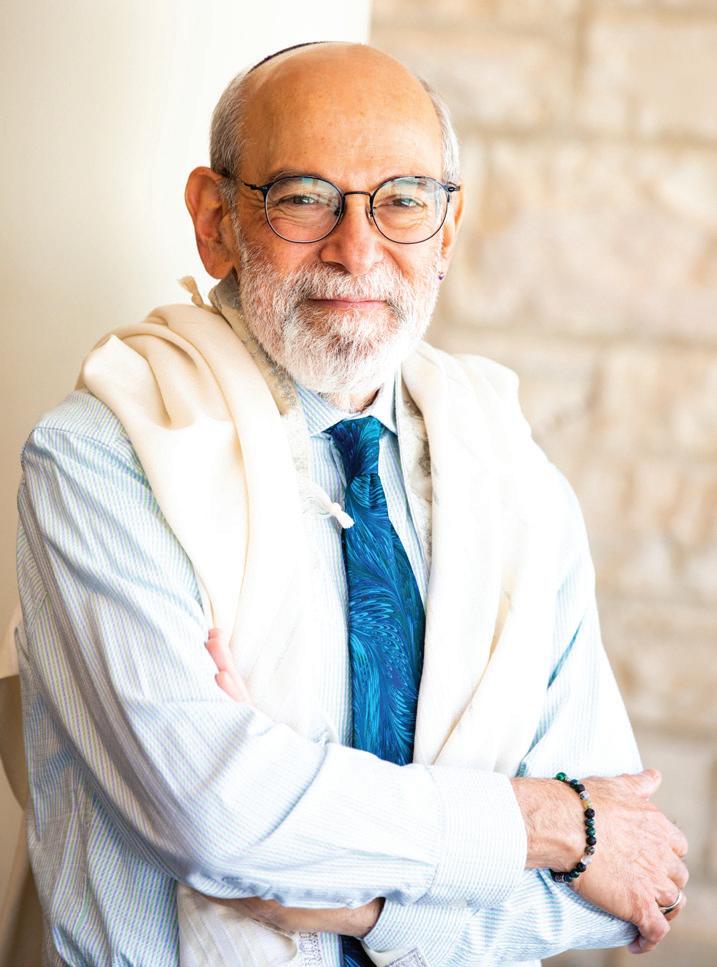
said Jon Meyers, director of ADDPC.
said Jon Meyers, director of ADDPC.
“Our hope is to create and promote opportunities for people to be embraced, become part of the community and find equitable opportunities wherever they
“Our hope is to create and promote opportunities for people to be embraced, become part of the community and find equitable opportunities wherever they
to be willing to work with people who are established here, people who know the territory. I don’t know Tempe very well yet, and I certainly don’t know Arizona, but I want to begin to get to know my people here,” he said.
Meyers first came to know Stern through her mother, Amy Silverman, who read her personal essays about raising a daughter with Down syndrome on KJZZ, National Public Radio’s Phoenix affiliate
Meyers first came to know Stern through her mother, Amy Silverman, who read her personal essays about raising a daughter with Down syndrome on KJZZ, National Public Radio’s Phoenix affiliate
about her Judaism with her fellow council members and speaking out for her rights and beliefs.
about her Judaism with her fellow council members and speaking out for her rights and beliefs.
She already has some practice at advocating for herself.
She already has some practice at advocating for herself.
The same will be true for Emanuel’s next settled rabbi, whom he will have no official role in choosing. However, “once the ink is dry on the contract, then it really is the rabbinic duty for a predecessor to tell the incoming rabbi all the information they will need, so they can hit the ground running,” Biatch said.
Meyers was so captivated by the essays that he reached out to Silverman, and the
“One time, I was in class and someone called me the R-word and I told him not to. The teacher was in the hallway and another student repeated the word,” she said. Rather than letting the situation go, she told her theater teacher, who was able to intervene.
“One time, I was in class and someone called me the R-word and I told him not to. The teacher was in the hallway and another student repeated the word,” she said. Rather than letting the situation go, she told her theater teacher, who was able to intervene.
“If someone has a disability, saying the R-word is like saying the F-word,” Stern said.
“If someone has a disability, saying the R-word is like saying the F-word,” Stern said.


“I’m here to make sure that the customs and the mores of a synagogue community are maintained. If there are changes to be made, they’re made with an eye of planting seeds so that the next settled rabbi has a chance to grow them with their leadership,” Biatch explained.
Meyers was so captivated by the essays that he reached out to Silverman, and the
That’s how Stern first learned of the open council seat, but there’s no doubt she earned her position, Meyers said.
According to Bedak, the search process for a full-time rabbi has begun. The posting will be made by the end of October, which is prime time for rabbis who have probably waited until after the High Holidays to tell their synagogues they’re ready to move on.
While performing in the musical “Hairspray,” she had another occasion to tangle with the offensive word, which appears in the script.
August 25
September 1
That’s how Stern first learned of the open council seat, but there’s no doubt she earned her position, Meyers said.
To become a council member, Stern had to apply and demonstrate that she had something valuable to contribute, he said.
While performing in the musical “Hairspray,” she had another occasion to tangle with the offensive word, which appears in the script.
“That’s really bad and my friend said it on stage. I was not OK with that, so I went to the director and told her it was a bad word for people with disabilities, but she wouldn’t take it out,” Stern said.
February 3
March 10
February 17
March 24
March 10
March 31
March 24
April 7
March 31
April 21
April 7
May 5
April 21
August 25
September 8
important thing is to make clear that the synagogue represents one community overall.
September 1
September 15
September 8
October 6
Bedak was part of the search committee that hired Biatch. He and other Emanuel members are “excited for what can be,” he said.
That’s his ground rule, or as he calls it, his “firmware.” He knows that it’s completely unfair to say or do something “outrageous” (not that it’s his style to do that, at any rate) because he won’t be around “to take the heat.” Instead, he sees his job as finding the messages that benefit Emanuel and laying the groundwork for its next full-time spiritual leader.
October 13**
September 15
October 6
October 20
October 13**
While Biatch moved to Tempe at the height of summer, always a challenge for those unused to high desert temperatures, the warm welcome he’s received from Emanuel members has been wonderful, he said.
May 19
November 3
November 10
October 20 November 3
November 17
November 10
December 1
November 17
“We have all kinds of people who are part of this community, and our continuing message is that while we can be many things in this tent, we must make sure that we keep this a loving place,” he said.
To become a council member, Stern had to apply and demonstrate that she had something valuable to contribute, he said.
“She’s on the council because she deserves to be on the council,” he said.
“That’s really bad and my friend said it on stage. I was not OK with that, so I went to the director and told her it was a bad word for people with disabilities, but she wouldn’t take it out,” Stern said.
Stern is creating a life and career as a member of her community, which makes her a great addition.
“She’s on the council because she deserves to be on the council,” he said.
Biatch is also taking the opportunity to enjoy his many passions that are informed by his spiritual leadership. For example, volunteering is something he values.
Stern is creating a life and career as a member of her community, which makes her a great addition.
For his own part, Biatch might say something once in a while that will “raise some eyebrows,” but given that he wants to bring the community together, he will focus on raising voices that “bring a lot more agreement and unanimity,” he said.
Stern graduated from McClintock High School in Tempe last year and now attends Glendale Community College, with a focus on dance. She is a regular performer at Detour Company Theatre, a Scottsdale theatre company for adults with intellectual, developmental and physical disabilities.
She let her mother know about the conflict and they were able to convince the director of the need to remove the word from the script.
She let her mother know about the conflict and they were able to convince the director of the need to remove the word from the script.
A year and a half ago, he spent a week at Tucson’s Casa Alitas’ Welcome Center assisting immigrants with a meal and some clothing.
“My friend Al was next to me when I told the director and he gave me the biggest hug ever and said that he loved me so much,” Stern said. Sadly, Al died in a car crash on Oct. 24, 2021.
Heart Can’t Even Believe It: A Story of Science, Love and Down Syndrome,” Silverman’s book about her daughter. When Gesher’s speakers’ bureau, Damon Brooks & Associates, was asked to find a speaker about Down syndrome for an event this spring, Hummell first asked Silverman to speak, thinking Stern might be too young.
“It was really rewarding to do volunteer work again, and our job was to be mishpacha (a family network) when they came to us,” he said.
June 9
May 5
May 19
July 14
June 9
August 4
July 14
He’s also been delighted to find that the temple’s many subgroups all get along very well. One such subgroup is the LGBTQ+ community, “who are deeply engaged in the activities of this synagogue and truly love this place,” he said.
August 18*
August 4
August 18*
December 15
December 1 December 15 *Best of Magazine **Annual Directory
Biatch explained that many synagogues have members who sort themselves ideologically and theologically, but the
Stern graduated from McClintock High School in Tempe last year and now attends Glendale Community College, with a focus on dance. She is a regular performer at Detour Company Theatre, a Scottsdale theatre company for adults with intellectual, developmental and physical disabilities.
While studying to become a rabbi, one of the things that was drilled into him was about the importance of creating community. The rabbi, as leader, might have to nudge congregants in different ways, sometimes leading, other times being led, but one must never be too far in front, he said.
In fact, when Stern attended her first council meeting in January, she couldn’t wait to tell people of her involvement with Detour and share information about its upcoming shows.
In fact, when Stern attended her first council meeting in January, she couldn’t wait to tell people of her involvement with Detour and share information about its upcoming shows.
“There’s no question that she is going to thrive,” Meyers said. “She’s very gregarious and passionate about the things that matter to her.”
“We have to understand our community to be partners with the people. We need
“My friend Al was next to me when I told the director and he gave me the biggest hug ever and said that he loved me so much,” Stern said. Sadly, Al died in a car crash on Oct. 24, 2021.
Heart Can’t Even Believe It: A Story of Science, Love and Down Syndrome,” Silverman’s book about her daughter. When Gesher’s speakers’ bureau, Damon Brooks & Associates, was asked to find a speaker about Down syndrome for an event this spring, Hummell first asked Silverman to speak, thinking Stern might be too young.
They decided instead that Stern should tell her own story; it’s a real bonus that she is not afraid of public speaking.
“That was hard; it’s very hard to get emotions out and I was very, very upset,” she said.
“That was hard; it’s very hard to get emotions out and I was very, very upset,” she said.
On the recent anniversary of his death, Stern made a cake and took it to the crash site.
He also spent time in Israel volunteering with the Israeli organization Rabbis for Human Rights, working with Palestinian shepherds and Israeli settlers after Oct. 7.
“I don’t know how I did it without crying. I’m so proud of myself,” she said.
On the recent anniversary of his death, Stern made a cake and took it to the crash site.
Additionally, he wrote a play last year. The action takes place in a Jewish hospice and he hopes that there will be a local performance sometime this winter. JN
“I don’t know how I did it without crying. I’m so proud of myself,” she said.
Amy Hummell, executive director of Gesher Disability Resources, agreed that Stern is a good fit for ADDPC because of her ability to self-advocate.
For more information, visit emanueloftempe.org.
Stern looks forward to sharing insights
“There’s no question that she is going to thrive,” Meyers said. “She’s very gregarious and passionate about the things that matter to her.”
Stern looks forward to sharing insights
Hummell co-hosted a book event with Meyers a few years ago for “My
Amy Hummell, executive director of Gesher Disability Resources, agreed that Stern is a good fit for ADDPC because of her ability to self-advocate.
Hummell co-hosted a book event with Meyers a few years ago for “My
Phone: 602.870.9470 | Fax: 602.870.0426 | editor@jewishaz.com | advertising@jewishaz.com subscriptions@jewishaz.com | www.jewishaz.com
Phone: 602.870.9470 | editor@jewishaz.com | advertising@jewishaz.com subscriptions@jewishaz.com | www.jewishaz.com
PUBLISHER
PUBLISHER
12701 N. Scottsdale Road, Suite 201, Scottsdale, AZ 85254 Phone: 602.870.9470 | Fax: 602.870.0426 | editor@jewishaz.com | advertising@jewishaz.com subscriptions@jewishaz.com | www.jewishaz.com
Jewish Community Foundation of Greater Phoenix
Jewish Community Foundation of Greater Phoenix
PUBLISHER
ADVERTISING SALES
SENIOR ACCOUNT EXECUTIVE Jodi Lipson | 602.639.5866 jlipson@jewishaz.com
Jodi Lipson | 602.639.5866 jlipson@jewishaz.com
GENERAL MANAGER Rich Solomon | 602.639.5861 rsolomon@jewishaz.com
Jewish Community Foundation of Greater Phoenix
GENERAL MANAGER
ASSOCIATE PUBLISHER Rich Solomon | 602.639.5861 rsolomon@jewishaz.com
MANAGING EDITOR
MANAGING EDITOR Mala Blomquist | 602.639.5855 mblomquist@jewishaz.com
Rich Solomon | 602.639.5861 rsolomon@jewishaz.com
Mala Blomquist | 602.639.5855 mblomquist@jewishaz.com
MANAGING EDITOR
STAFF WRITER Shannon Levitt | 602.639.5854 slevitt@jewishaz.com
SUBSCRIPTIONS 602.870.9470 x 1 subscriptions@jewishaz.com
ADVERTISING SALES CONSULTANT Jodi Lipson | 602.639.5866 jlipson@jewishaz.com
SUBSCRIPTIONS 602.870.9470 x 1 subscriptions@jewishaz.com
SUBSCRIPTIONS 602.870.9470 x 1 subscriptions@jewishaz.com
GRAPHIC DESIGNER Ebony Brown | 410.902.2333 ads_phoenixjn@midatlanticmedia.com
GRAPHIC DESIGNER Ricki Urban | 602.870.9470 X 2 advertising@jewishaz.com
Mala Blomquist | 602.639.5855 mblomquist@jewishaz.com
STAFF WRITER Shannon Levitt | 602.639.5854 slevitt@jewishaz.com
STAFF WRITER
Shannon Levitt | 602.639.5854 slevitt@jewishaz.com
GRAPHIC DESIGNER Ebony Brown | 410.902.2333 ads_phoenixjn@midatlanticmedia.com
They decided instead that Stern should tell her own story; it’s a real bonus that she is not afraid of public speaking.
“It’s not the same when someone tries to tell a person’s story for them,” Hummell said.
“It’s not the same when someone tries to tell a person’s story for them,” Hummell said.
Additionally, helping people with disabilities find jobs was one of the reasons for acquiring the bureau. Unemployment in the disability community is upwards of 75% and of that percentage, 75% are ready, willing and able to work — but haven’t been given the opportunity, Hummell said.
Additionally, helping people with disabilities find jobs was one of the reasons for acquiring the bureau. Unemployment in the disability community is upwards of 75% and of that percentage, 75% are ready, willing and able to work — but haven’t been given the opportunity, Hummell said.
“People have it in them to speak up but don’t know how, and often they’re not cheered on. Sophie has family support
“People have it in them to speak up but don’t know how, and often they’re not cheered on. Sophie has family support

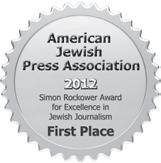

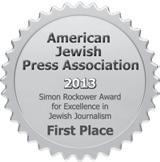


“I am concerned by the rising tide of antisemitism, here in our community and around the world. Phoenix is the largest city in the United States without a Holocaust museum or education center. It is vitally needed in the Valley, more than ever. This collaboration with the Arizona Jewish Historical Society will help preserve and embrace the rich heritage of our local Jewish communities, educate the public on the historical significance of the Holocaust, and teach students to take responsibility for building a better and more just world,” Galvin further stated in the press release.
Frank Jacobson, the Holocaust center’s management consultant and capital campaign director, is optimistic the campaign will hit its goal by next spring, allowing the center to break ground in July. Given the size and scope of the project, he estimated it would be roughly two years before the center opens.
“We’re looking to open the doors in April 2027,” he told Jewish News.
“We are extremely grateful to the Maricopa Board of Supervisors, particularly Supervisor Galvin, for sponsoring this generous appropriation,” said Steve Hilton, Arizona Jewish Historical Society (AZJHS) project chair and board member, in a press release. The planned center is named for his family. Hilton also donated $4 million to the campaign last year.
“This project is really important now because there are so many young people in our country that don’t know about the Holocaust,” Hilton told Jewish News at the public launch of the center’s capital campaign last November.
His father, Samuel Hilton, lived in the Warsaw Ghetto, where he fought back
against the Nazis in the ghetto’s famous 1943 uprising, the largest single revolt by Jews during the Second World War. Hilton was deported to and survived some of the most infamous Nazi concentration camps, Buchenwald, Majdanek, SkarzyskoKamienna and Theresienstadt, before being liberated by Allied forces at the end of the war. He was his large family’s only survivor and a hero to his son.
Hilton believes that this dedicated center of Holocaust education will be pivotal to “keeping the stories alive and relevant for all future generations to understand what the Holocaust was, those who were lost and why it’s up to each of us to stand up against hate and intolerance of any race or group of people.”
The designers of the center plan to incorporate the existing AZJHS architecture into the new structure, which will be next to it in downtown Phoenix.
The location has the benefit of being centrally located, with easy access to the light rail station, the main public library and plenty of parking.
A big part of the recent $2 million will pay for immersive exhibitions in the planned 28,500-square-foot building. These exhibitions have been designed to highlight the stories of Holocaust survivors, teach visitors about other genocides and promote understanding among people of diverse backgrounds.
“The Hilton Family Holocaust Education Center will take a multifaceted, experiential approach to presenting the history and legacy of the Holocaust. As students move through the galleries, they will experience both a physical and emotional journey, gaining the understanding that will inspire them to
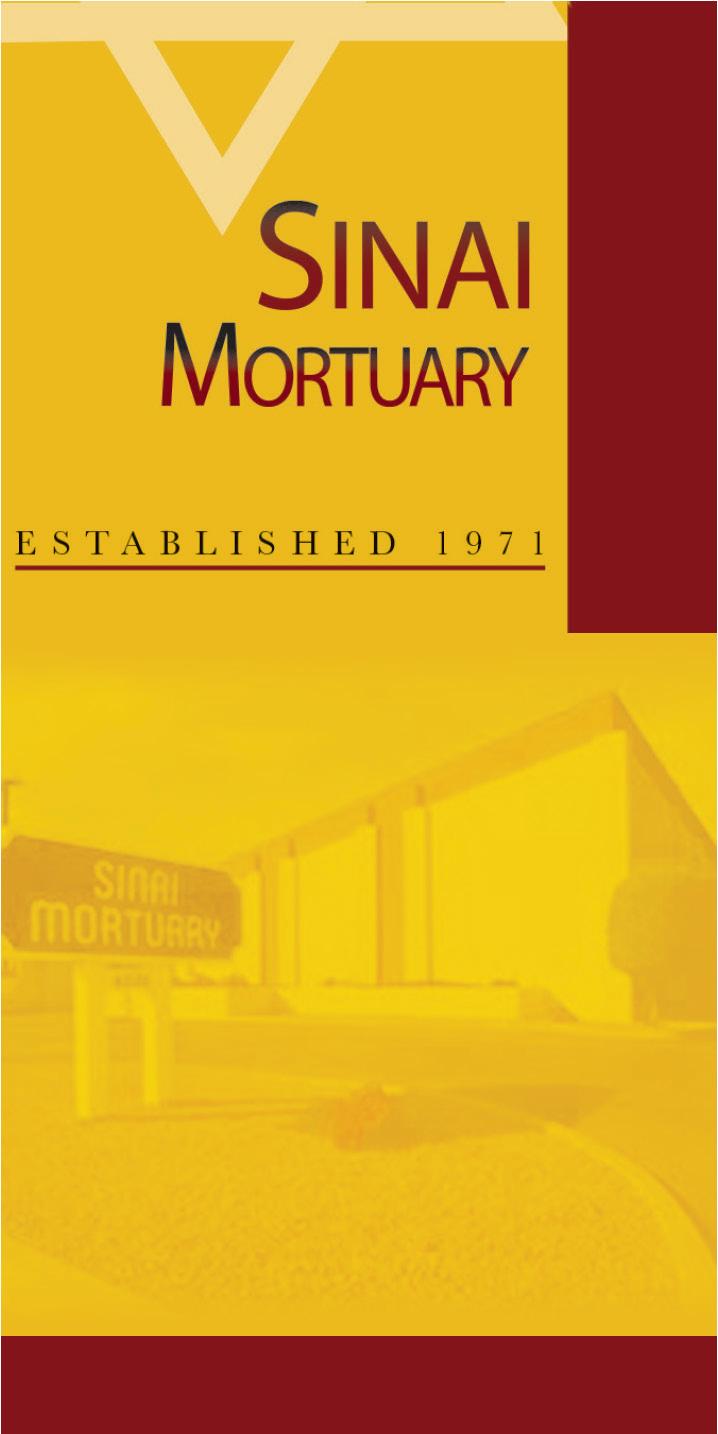
act and help ‘repair the world,’” Hilton said.
The money will also subsidize admission fees for public school students, who will be able to visit the center at no cost.
In 2020, the Arizona State Board of Education made a rule change requiring students to receive instruction on the Holocaust at least twice during their secondary schooling. The law went into effect a year later. AZJHS will help to supply a curriculum about the Holocaust to public schools in Maricopa County to fulfill state educational standards.
Jacobson said the announcement of $2 million from Maricopa County “is very, very exciting for us,” adding that it puts the center “on a great path.”
He remains cleareyed about the remaining money that needs to be raised.
The last 10-20% is “the hardest money to raise,” he said. “People think, ‘Oh, they got it’ or ‘They don’t need me.’” He’s excited to tell people how necessary those contributions still are, especially to the parts of the Jewish community who still haven’t heard about the center.
“This is the most important project we’ve done for the community since the building of the Ina Levine Jewish Community Campus in Scottsdale. I hope we get thousands more to support us. It’s something that everyone should contribute to, whether it’s a small gift or large one — it’s all going to this incredible Holocaust education center,” he said. JN
The AZJHS’ annual fall fundraiser, “Building a Bridge” will be held on Nov. 17 at 5 p.m. to benefit the Hilton Family Holocaust Education Center and AZJHS cultural and education programs. For more information, visit azjhs.org.


SHANNON LEVITT | STAFF WRITER
The public library of Sierra Vista, a small town in southeast Arizona, hosted “Walk with Holocaust Survivors,” a virtual reality exhibition for two weeks in October.
“This exhibit was for everyone in the community to learn what happened and to hear it from those who experienced it,” adult-services librarian Susan Abend told Jewish News.
The program allowed visitors to watch and listen to Fritzie Fritzshall (now deceased) and George Brent, both Holocaust survivors, as they talked about growing up in different parts of the former Czechoslovakia before being deported to Auschwitz-Birkenau as teenagers.
Once visitors put on the VR headsets, “they feel like they’re there in the work camps and where they slept, even in the gas chambers,” Abend said. “Much of our community is very interested in history, and they like to feel the texture of history that this three-dimensional model

allows. It’s just so different from reading about it.”
Abend discovered the exhibition offered by the Illinois Holocaust Museum and Education Center, which provided the materials for free, but only for two weeks. She was eager to use it, especially as the number of survivors dwindles every year.
“We’re losing that memory,” she said.
Abend has lived in Sierra Vista for about two decades. Since the exhibit has been up, she’s been surprised to learn just how many Jews there are in the small city of fewer than 50,000 people.
“I wasn’t aware that we even had a Jewish community until now,” she said. But in all frankness, “this exhibit wasn’t for the Jewish community.” Instead, she sees it as a vital supplement to public education, even since the passage of mandatory Holocaust education.
In 2020, the Arizona State Board of Education made a rule change requiring students to receive instruction on the Holocaust at least twice during their secondary schooling. The law went into effect a year later.
Abend has been underwhelmed by the way the Holocaust is covered, even given the mandate.
“When I was in school in the 1980s,
World War II was taught for six weeks. Now it’s not even a whole chapter,” she said.
Arizona is a local control state, meaning it is up to each school district and, in many cases, each teacher, to decide how to meet the requirements of the mandate and legislation, which also do not provide any guidance. There is no statewide requirement for how much instructional time must be spent on Holocaust education.
Kim Klett, a retired Dobson High School teacher, regretted that the mandate wasn’t “more defined,” particularly with what aspects should be covered in junior high and what aspects should be covered in high school, so there could be a “clear progression,” she told Jewish News in 2021.
Recently, House Bill 2760, introduced by Arizona Representative Alma Hernandez (D-20) in February, was signed by Governor Katie Hobbs. It will form a temporary study committee to review educational standards and suggest legislative action for improving lessons and training materials.
The Arizona Department of Education (ADE), working with The Taskforce For Holocaust Education and Other Genocides — led by the Phoenix Holocaust Association — is doing its
best to fill in any gaps by providing resources and professional development for teachers. Klett is also a PHA board member. The Martin-Springer Institute at Northern Arizona University in Flagstaff is another organization working to assist teachers of the Holocaust.
Abend hoped this exhibit will intrigue other nearby libraries and schools to request it.
“Everyone who has come has been really impacted,” she said. Her goal was to have 80 people attend, a number she achieved by Saturday, Oct. 26, the exhibit’s last day.
Many who visited have World War II veteran family members, know people who had been in concentration camps or are history buffs.
“We had a daughter of an Italian soldier whose father was shipped off to a German concentration camp,” Abend said. “People either couldn’t bring themselves to talk about their family’s experience or they wanted to talk a lot about the connection to that period. I learned so much I didn’t know.”
Abend has a lot on her plate since she does 18 varied programs a month. Yet, Holocaust education is a priority and she hopes to do more.
“If I can do more, I will,” she said. JN

MIRA PRESTON | SPECIAL TO THE JEWISH NEWS
Acommittee will soon be formed to review Holocaust education standards in Arizona public schools.
House Bill 2760, introduced by Arizona Representative Alma Hernandez (D-20) in February and signed by Governor Katie Hobbs in April, will form a temporary study committee to review educational standards and suggest legislative action for improving lessons and training materials.
This comes three years after a previous bill, also introduced by Hernandez, was signed into law mandating that Arizona public schools be required to teach students about the Holocaust and other genocides at least twice between the seventh and 12th grades. However, the bill did not mandate any specific curriculum for teachers to use, leaving it up to the schools’ discretion. As a result, Hernandez said in an interview, it is important to get an assessment on how schools across the state are dealing with the new standard.
“It was important for us to do an assessment of where the deficiencies are, as far as the way that we’re teaching it,” Hernandez said. “We wanted to get together and figure out where the deficiencies are, or what we can do to improve it.”
The bill specifies that the committee will present their findings and recommendations by April of next year and be disbanded by September of next year, but these dates are subject to change due to delays.
The committee members have not been appointed yet, but they will include three members of the Arizona Senate, three members of the Arizona House of Representatives, a public school teacher and a university faculty member, among others. According to Hernandez, potential members are currently being discussed and will be appointed by next month. Hernandez herself will be serving on the committee.
“I’m looking forward to working with those on the committee to bring about some positive change into this very troubling time that we’re living through,” Hernandez said.
The bill comes during a time of increased tension in Jewish communities due to what’s seen as a rise in antisemitism after the Oct. 7 attacks in Israel last year, according to Arizona Representative Alexander Kolodin (R-3).
“What I’m hoping is that they come up with ways to improve our state curriculums so that students understand
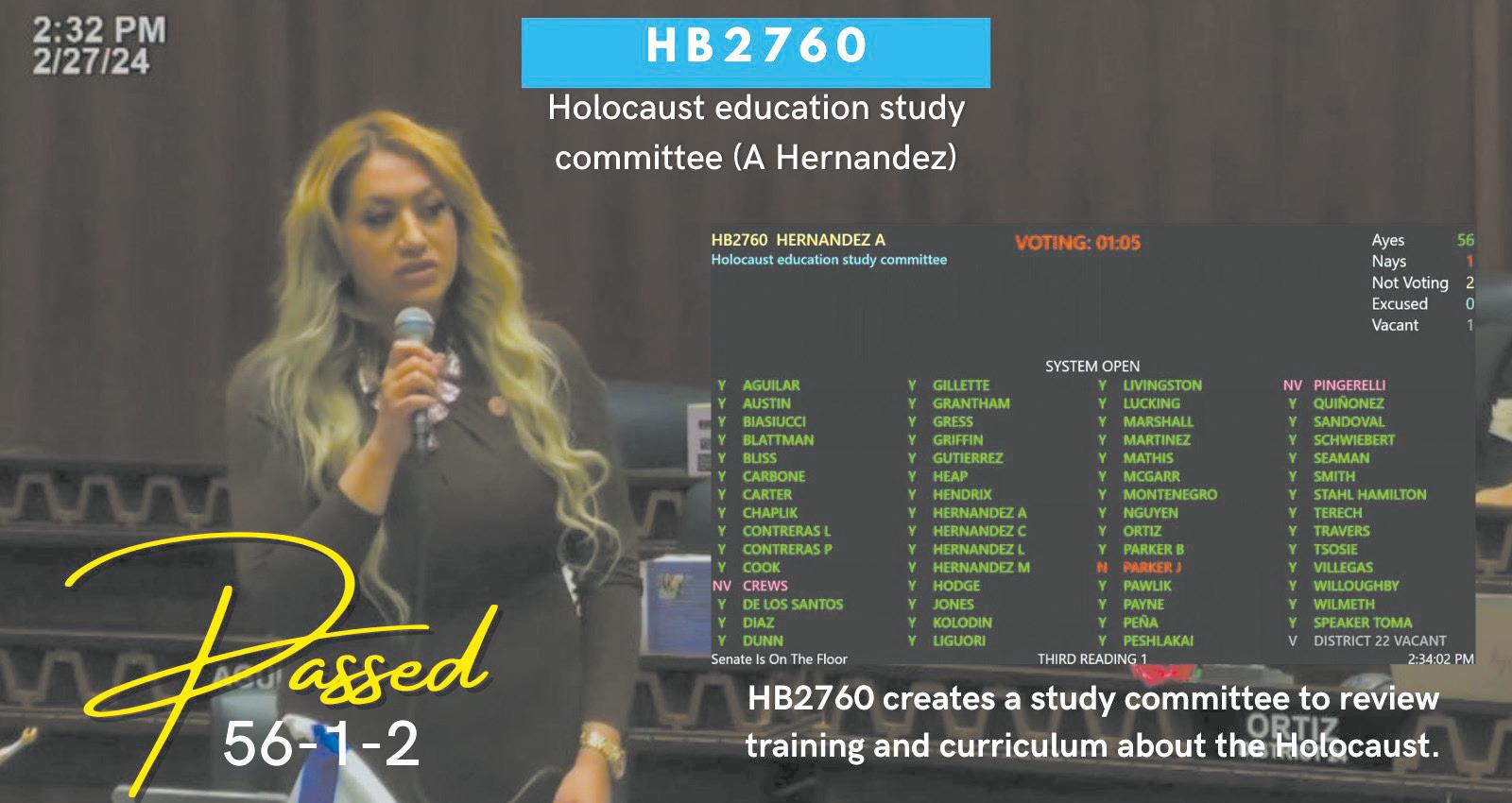
why Jews have been persecuted, why the state of Israel exists — you can’t really understand that without understanding the importance of the Holocaust to all that,” Kolodin said in an interview.
According to the bill’s summary, part of the focus of the committee will be on facilitating speaking engagements with Holocaust and genocide survivors and their families at both public schools and universities. Anthony Fusco, associate education director at the Arizona Jewish Historical Society in Phoenix, said that hearing these first-hand accounts is important for fostering understanding of these historical events.
“Stories of the Holocaust, which are the darkest chapters of human history, can hopefully be agents of change to where students will learn from these emotionally, powerfully charged stories of resilience,” Fusco said.
According to Fusco, there are currently about 70 Holocaust survivors in the Phoenix area.
While the committee primarily focuses on K-12 education, another aspect that the committee will review is how public universities in Arizona can incorporate Holocaust education into “courses and campus engagements,” according to the bill’s summary.
Brian Goodman, assistant professor of English at Arizona State University, who is an expert on dissident literature and Jewish Studies, emphasized the importance — and difficulty — of properly teaching the Holocaust in all its complexity, both at the K-12 and university level.
“I think one thing we need to do is trust teachers, trust our students and what they’re capable of understanding
and grappling with,” Goodman said, “and empower both teachers and students to do the difficult work in the classrooms because it’s so important.” JN
The Center for Jewish Philanthropy is continuing the tradition of the Belle Latchman Community Service Award presented in recognition of an outstanding current contribution to the enhancement of the quality of life in the Greater Phoenix area.
All local non-profit Jewish agencies, organizations, institutions or committees are invited to submit an application. Contributions should be innovative, constructive forms of service that perpetuate Jewish values. Programs of any size, including those done within an organization, as well as those that involve the community at large, will be given consideration.
Applications are now available at phoenixcjp.org/Latchman2025
Deadline to submit: December 16, 2024
Award Presentation: March 6, 2025
MALA BLOMQUIST | MANAGING EDITOR
On Oct. 29, a grand jury indicted 60-year-old Phoenix resident Jeffrey Michael Kelly on one count of an intentional act of terrorism, three counts of discharging a firearm at a nonresidence and three counts of discharging a firearm within city limits, according to court records.
Kelly was arrested on Oct. 22 in connection to his alleged involvement in four separate incidents of political violence. Police have tied him to a series of shootings at a Democratic National Committee (DNC) office in Tempe, as well as placing antiDemocratic signs in nearby Ahwatukee.
Kelly is accused of shooting at the DNC office on three different occasions between Sept. 16 and Oct. 6. He initially used a C02 powered gun before escalating to .22 caliber firearms, according to Tempe Police.
Over the course of the three shootings, he fired more than 20 times, causing damage to the building late at night, according to the Maricopa County Attorney’s Office.
Law enforcement officers surveilling
Kelly also saw him placing signs that read “Dems kill Jews,” “Dems Lie” and “Never Harris,” referring to Democratic presidential nominee Vice President Kamala Harris.
The signs had razor blades and bags of white powder attached to them with the messages “biohazard” and “F*** you! Play stupid games win stupid prizes! Guess the poison.” Initial testing revealed the white powder in the bags to be baking powder, according to reporting by the Arizona Republic.
Jewish Phoenix attorney Paul Weich was running as a Democrat for state representative in Legislative District 12 in 2022 when he had a run-in with Kelly. Weich has several political signs damaged and a private investigator found surveillance video catching Kelly in the act of vandalism.
Weich told the Arizona Republic that the incidents started in the Ahwatukee Foothills area, but vandalism and property theft of his signs eventually spread throughout the district. At one point, the spliced-up signs were left at the entrance to Weich’s
“Advertising in Jewish News is straightforward and e ective! It’s a fantastic way to promote your synagogue or business. Their creative team is great to collaborate with and can design the perfect ad for you.”
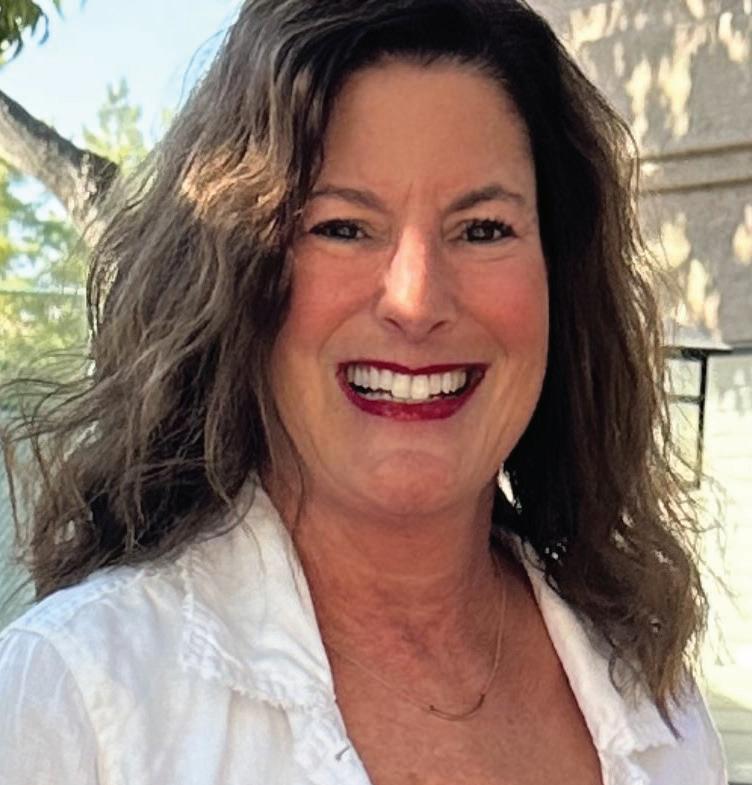
Renee Joffe-Hrlevich
Administrator,
Congregation Kehillah
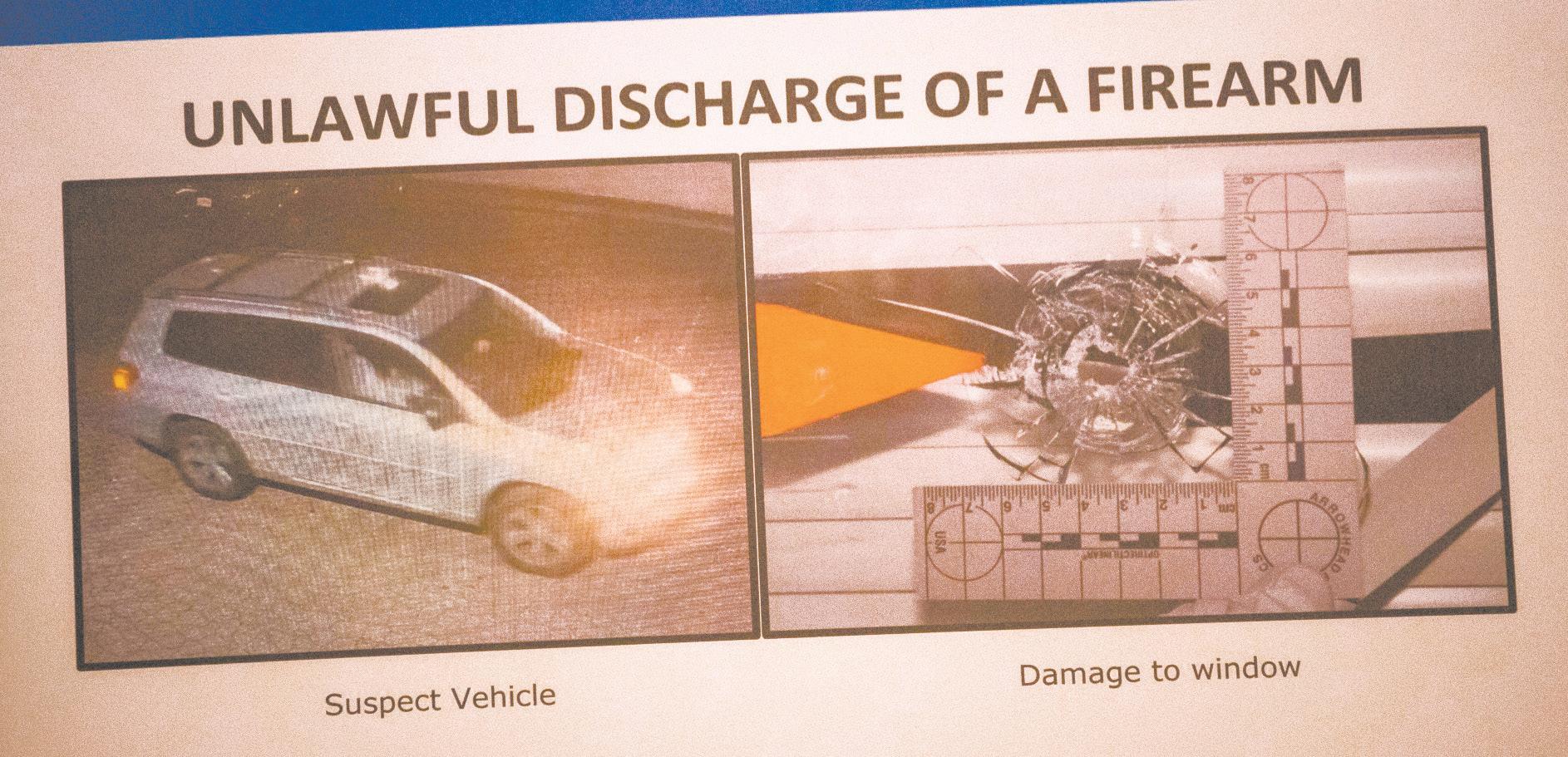
neighborhood.
“We weren’t sure what his motivations were in targeting my signs,” Weich said in 2022.
At that time, police submitted misdemeanor charges for one count of theft and one count of political sign tampering, but a Phoenix prosecutor chose not to pursue the case. All the charges against Kelly in the current indictment are felonies.
Kelly has also posted unfounded conspiracy theories on a Facebook page found by the Arizona Mirror. As far back as 2014, Kelly was amplifying the debunked and racist “birtherism” claims about former President Barack Obama.
On Jan. 6, 2021, while rioters were storming the U.S. Capitol in an attempt to overturn the election for former President Donald Trump, Kelly changed his Facebook banner to a “Stop The Steal” logo, the movement that pushed unfounded claims around the 2020 election results.
On Oct. 23, the Maricopa County Attorney’s Office said that a search warrant of Kelly’s home found 120 guns, 250,000 rounds of ammunition, body armor and a grenade launcher. Among other evidence, police uncovered Google searches Kelly performed looking up the address of the DNC office. The police also noted that Kelly “has finances and resources to conduct further acts of terrorism” and frequently travels across state lines.
Prosecutors said that law enforcement believed that Kelly was leaving his home Oct. 22 to “potentially do something” and was preparing for a “mass casualty” event. At a press conference on Oct. 23, Tempe police would not elaborate on what led them to believe Kelly had larger plans, citing an ongoing investigation.
The prosecutor called him an “absolute threat to the community,” citing the progression of violent acts he is alleged to have taken part in.
Arizona State Senator Mitzi Epstein, whose district (LD12) includes Ahwatukee
and southwest Tempe, said the community is glad to see the authorities taking Kelly’s actions seriously.
“This guy really is a threat and we’re glad that they are treating him as such,” she said. “As opposed to when he did all the damage to Paul Weich’s political signs two years ago.” She was the first to contact Chabad of Ahwatukee Rabbi Levi Minsky and share information with him about the incident.
Phoenix City Councilman Kevin Robinson said he hadn’t seen vandalism like what Kelly had done recently in this election cycle, but there has been “an uptick in rhetoric and the police department is staying on top of things.”
Robinson told Jewish News he planned to reach out to Minsky to make sure he has his contact information and to let the rabbi know he was just a phone call away if he needed anything.
A retired senior law enforcement executive, Robinson spent several decades in law enforcement. “Sometimes talk leads to action, so we have to be vigilant and hold people accountable if they want to travel down that path,” he said.
Tempe police said they became aware of Kelly due to a tip after the department had released a photo of the car asking the public for help. A citizen called in to say that, in 2022, Kelly had been seen stealing Democratic campaign signs in that same vehicle.
During their investigation, Tempe police found spent ammunition in Kelly’s trash that matched the caliber of rounds fired at the DNC office.
“Let me be clear: Justice does not have a political party,” Tempe Police Chief Kenneth McCoy told the media at the press conference. “There is no place in the City of Tempe for political threats and intimidation.” JN
This article incorporated reporting from the Arizona Mirror.
SHANNON LEVITT | STAFF WRITER
Alittle over a year ago, Jason Morris was in the United Arab Emirates preparing for an annual men’s mission trip to Israel. Morris was with his fellow mission leaders Steve Hilton and Jonathan Hoffer to see the site of the Abraham Accords in person before heading to Israel for the mission trip, which was set to begin on Monday, two days after Oct. 7. That’s where the three were that Saturday, when they learned of the horrific news that Hamas militants had successfully launched a surprise attack into Israel that morning.
By Saturday night, the trio had canceled the official trip — “at the very last moment before the guys were supposed to get on the plane,” Hilton told Jewish News last year in an email. However, the three men decided to go to Israel themselves to see what, if anything, they could do to help. After arriving in the country, they purchased a variety of toiletries and essential items to distribute to soldiers abruptly called to serve.
The three men heard from Israelis themselves, such as one of their former guides, who broke into tears telling them that his son’s best friend had just been killed in Gaza.
That experience deepened the bond the three had formed over the years since starting the mission trip six years ago.
“Not a day has gone by since then that the three of us haven’t talked or communicated in some way,” Morris told Jewish News. They started a text chain they call the “War Room Brothers,” born of their time figuring out the best way to be of use to Israelis in the direst of need.
Even before last October, the three had grown close because of the men’s mission group, which is offered through the Center for Jewish Philanthropy of Greater Phoenix (CJP) and organized by CJP’s Jewish Federations of North America partners in Israel.
The idea for the men’s mission trip was initially sparked when a group of people met with Detroit’s Jewish Federation to find out the secret to its success.
“Detroit’s Jewish community is thriving and involved,” Morris said. The Michigan city’s Federation had developed several mission trips to Israel resulting in Jews coming back to the Detroit area feeling invigorated and interested in building the local Jewish community.
Morris was part of the first trip. He likes to joke that Hilton and Hoffer invited him to be “the comic relief.” But in all seriousness, “the three of us together are better than any one of us individually,” he said. Their individual strengths, and access to different resources, create a good balance.
Last October, they also found out how well they can work together in the worst of circumstances.
“We didn’t intend to be there alone, but it tested our ability to adapt and put a plan together,” Morris said.
The trips have also been successful in achieving the goal of getting people, who were either on the periphery of the Jewish community or, at least, not terribly engaged, more involved. Morris pointed out, however, that there is no one way, or right way, to be engaged. Some people come back and get involved in their synagogues; others in local Jewish organizations; and others focus on more social engagement with the Jewish community.
The majority of people come back very inspired. “My involvement is exponential to what it was before I got involved in this group,” said Morris.
“Through these missions and alliance with the CJP, we’re building a group of alumni that can network, share information about community events and, most importantly, help build the Jewish community and its continuity both here and in Israel,” Hoffer told Jewish News.
The mission now has more than 70 alumni and continues to grow, despite the recently planned trip to Israel being postponed due to safety considerations. Instead, a small group went to Los Angeles recently for a private tour of the “Nova Exhibition,” an in-depth remembrance of the brutal massacre at the Supernova music festival on Oct. 7, and met with a survivor.
Trip attendees must be invited and the creators have tried “to cast a wide net” through the community, Morris said. Still, even via word of mouth, the number of people being included is growing, as is the demand for invitations.
More importantly, “every trip has had an impact,” according to Morris. It’s not always limited to Jewish people.
Last January, a small cohort went to Israel together, including Paul Johnson, the non-Jewish former mayor of Phoenix. He was so impacted by what he saw and learned that he put together a one-day symposium with American and Israeli speakers for community leaders in Phoenix to be briefed, Morris explained.
The future seems bright for these trips, not to mention wide open, considering the range of different demographics in the Greater Phoenix Jewish community.
“These trips are incredibly important and they’ll continue to evolve,” he said. JN
The Arizona Jewish Historical Society (AZJHS) is in the midst of a successful campaign to build the Hilton Family Holocaust Education Center on the AZJHS campus and equip the Cutler✡Plotkin Jewish Heritage Center with state-of-the-art technology. We invite you to our Annual Fall Fundraiser to benefit the
Sunday, November 17th, 5:00 PM
Kosher Happy Hour & Dessert Reception featuringthemusic by We3 with Sheila Earley and special guest Francine Reed
$300 per ticket
For more information, to sponsor or purchase tickets, please scan the QR code below. .
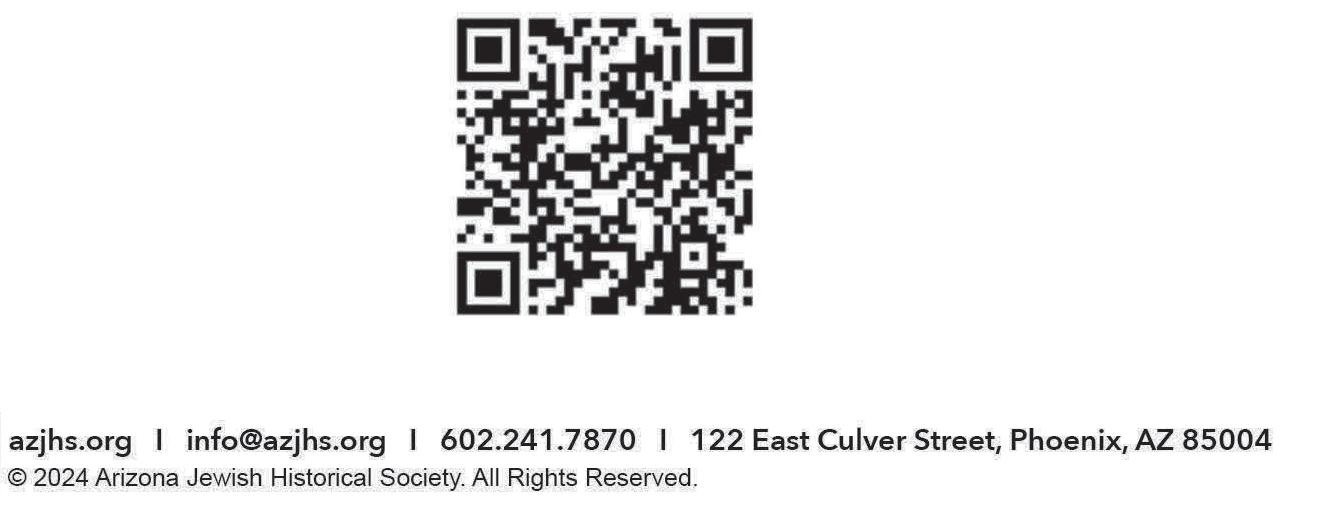
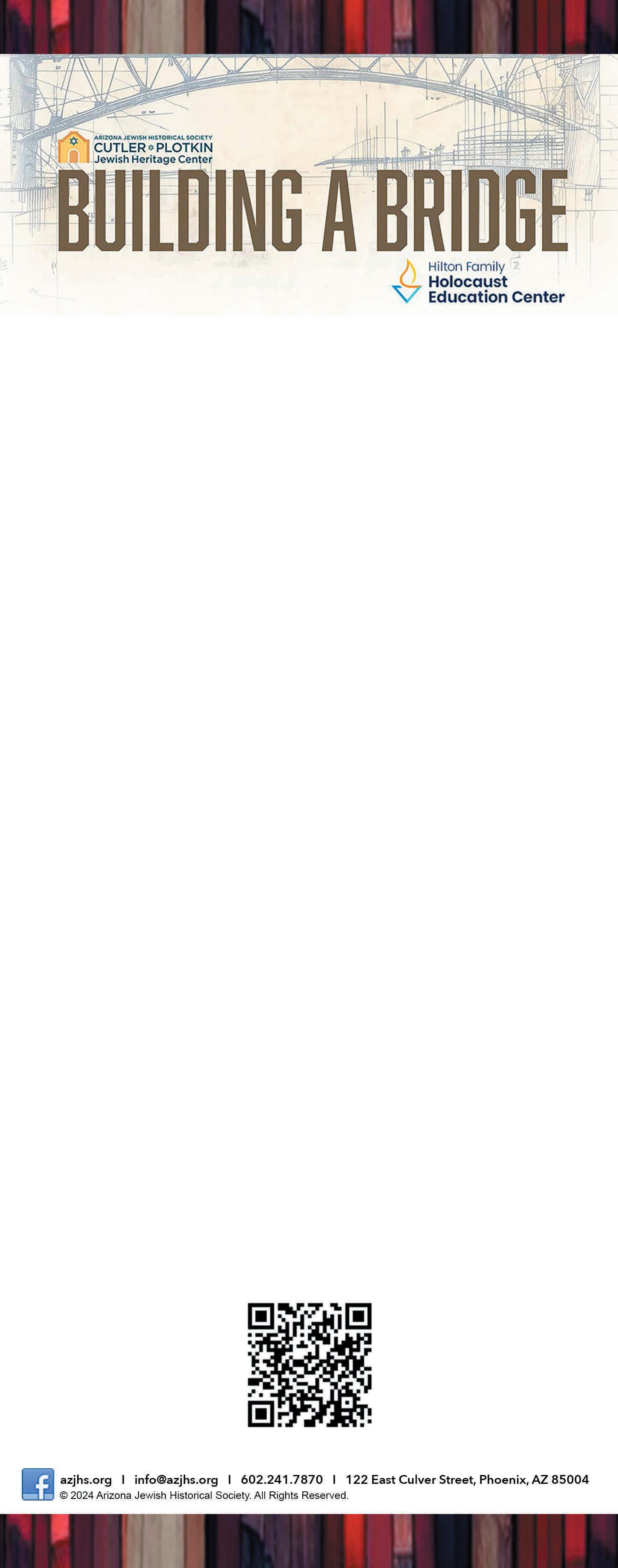

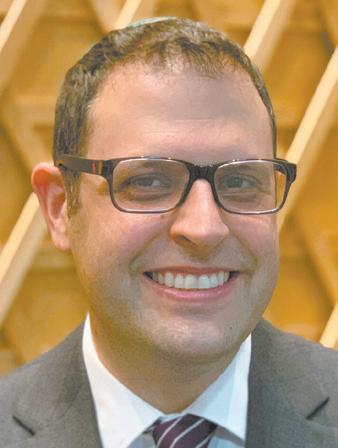
Parshah Lech Lecha introduces Abram, who will become Abraham, the world’s first Jew. In our portion, Abram as referred to as an “Ivri” (Genesis 14:13), a Hebrew. The sages explain that Abram was called an Ivri because “the entire world was on one side, and he was on the other side [ever].” (Bereshit Rabbah 42:8) This past year, many of us have known the loneliness of Abram, so clearly knowing the truth of our story, looking across the chasm at those choosing to stand against us.
We were slaves in the Land of Egypt, and God took us out with a strong hand and an outstretched arm and brought us to a land flowing with milk and honey, a promised land, intended for us, the Land of Israel. There our ancestors thrived for hundreds of years before we were exiled from our Land, to endure thousands of years of oppression. All this time we prayed facing towards Jerusalem, beseeching God for
the redemption of Zion. We never gave up hope and eventually, we came home.
We revitalized this neglected land so it would flow with milk and honey once again: we drained the swamps, planted the forests and made the desert bloom. We forged a Jewish rebirth: revived our ancient tongue, ingathered our scattered exiles and reunited our Holy City. We established a nation: affirmed our independence, founded the sole democracy in the Middle East and innovated world-changing technologies. Out of necessity, we fortified a powerful defensive military, and we made a lasting peace with all those willing to share peace with us.
On the other side of the river though, they imagine Israel as occupying historic Palestine, even though it was well after Israel declared independence, in the 1960s and 70s, that regional Arabs appropriated the Roman/British colonial name Palestine to claim indigeneity and question the continuous Jewish historical, cultural and religious connection to the land.
In recasting Jews as foreign interlopers, Israelis become White Europeans, when Jews come in every color, when most Israeli Jews have no European ancestry and when white supremacists certainly don’t consider Jews white, no matter our skin tone.
They call Israel a colonial power, when Israel’s establishment in 1948 was true decolonization, the successful repatriation of an indigenous people after years of oppression and colonization.
They associate Israel with words evoking the greatest sense of evil in our discourse: apartheid, genocide, ethnic cleansing — all things we as Jews have been victims of and that her enemies have called for against Israel. Yet, more than one fifth of Israelis today are Arabs with full equal rights, votes, representation, freedom — the opposite of ethnic cleansing and apartheid. Regarding the genocide libel, the Palestinian population in Gaza alone has grown nearly tenfold over the past 60 years, while today there are still fewer Jews alive than there were on the eve of the Holocaust.
Moreover, Israel does not target civilians nor bomb indiscriminately. Rather, terrorists deliberately use civilians as human shields while Israel dedicates extensive resources to avoid harm to nearby civilians while targeting those terrorists. We see this exemplified in the highly targeted beeper and walkie-talkie attack against Hezbollah terrorists, and in the countless leaflets, text messages and phone calls communicated by Israel to protect civilians. Remarkably, Israel’s operations in Gaza over the past year
registered the lowest civilian death ratio in the history of contemporary urban warfare. In 1892, Ahad Ha’am commented that the original blood libel brought him a “half solace.” This libel was an antisemitic lie popularized throughout the Middle Ages that claimed that Jews were murdering Gentiles to use their blood to bake matzah. Matzah isn’t kosher if it has any ingredients other than flour and water, and blood of any kind is never kosher. In a time where most Jews baked their own matzah for Passover, it would be obvious to them that the blood libel was a lie. Ahad Ha’Am hoped that we would know from this historic example, that it is indeed possible for the whole world to be wrong and for the Jewish Nation to be right.
Be proud to stand across the river, like Abram long ago.
Am Yisrael Chai! JN
Rabbi Andy Green is the senior rabbi of Congregation Or Tzion.
No, we shouldn’t retire the word ‘Zionism.’ We should take it back.
ZACK BODNER | JTA
In the face of campus attacks on “Zionists” and a global backlash against the very ideology of “Zionism,” there have been calls to retire the word Zionism. The latest came from Case Western Reserve university professors Alanna Cooper and Sharona Hoffman, who argue that because Israel’s enemies use the word to avoid saying ”Israel,” and distort the historical meaning of the word, the terms “Zionism” and “Zionist” “should be retired from our vocabulary.”
This would be a mistake of epic proportions. It won’t make our enemies love us. In fact, it will have the opposite effect and just embolden them to keep chipping away at our narrative, our heritage and our people. So, we must double down on that word and remind everyone what it really means.
And here’s what it means (the AntiDefamation League got it right): “Zionism is the movement for the self-determination and statehood for the Jewish people in their ancestral homeland, the land of Israel.”
That’s it. Nothing more and nothing less.
The word represents something vitally needed for world Jewry at this hour: Jewish pride. We must show them that we won’t bow to their pressure on this or any other antisemitic attack, and here’s why:
First, words matter. Our enemies have long used language to stoke Jew hatred. From passion plays that proclaimed Jews killed Jesus to blood libels that claimed Jews drink the blood of Christian children to Hamas lies that Israelis harvest Palestinian organs to anti-Israel protesters screaming that Israel commits genocide and apartheid — our enemies have always used words to inflame hatred against us, and it has often led to real violence. They’re doing the same thing today by turning the word Zionism into a bad word. But we cannot let them.
Second, we get to define our own lexicon, not our adversaries. Cooper and Hoffman write that Jewish Voice for Peace, the United Nations and others have chosen
to give Zionism “pernicious meanings.” Why do we think caving to our adversaries is ever the right strategy? Winston Churchill famously said, “An appeaser is one who feeds a crocodile hoping it will eat him last.”
Third, it’s a slippery slope. What’s next? Jew haters will go back to the UN to attempt once again to define “Zionism as racism” — an argument the American Jewish community and government officials spent 16 years fighting to repeal — and then where will they then go from there? Will they try to turn the word “Israel” or “Jewish” into bad words too?
Fourth, the attack on the word Zionism is something more nefarious in disguise: It is our enemies’ attempt to erase the Jewish connection to Zion altogether. If we retire “Zionism,” with all of its deep historical resonance, it will only embolden them to keep lying about the lack of Jewish connection to the land of our people.
Ultimately, we must stand up to our
We are a diverse community. The views expressed in these opinion pieces do not necessarily reflect the
Philanthropy, Jewish Federation of Greater Phoenix, Cleveland Jewish Publication Company or the
should be a maximum of 200 words. They may be edited for space and clarity. Unsigned letters
adversaries. We must show them that we are proud of our heritage, our people and our language — including the word Zionism. For only pride will defeat antisemitism. Zionism is not just self-determination for Jews in our homeland but self-actualization for Jews all over the world. That’s the Zionism of today, Zionism 3.0. In the end, not only must the word Zionism not be retired, but the word and the ideal it embodies must be resurrected, rejuvenated and rebooted. A strong, courageous, self-determining Zionism both in Israel and in the Diaspora is a Zionism with fighting for. That’s what Israeli soldiers are fighting for. That’s what proud Jewish kids on campus are fighting for. That’s what Jews around the world are fighting for. It’s time to double down and take back the word Zionism. JN
The views and opinions expressed in this article are those of the author and do not necessarily reflect the views of JTA or its parent company, 70 Faces Media.
MALA BLOMQUIST | MANAGING EDITOR
Nancy and Robert “Bob” Kravetz will celebrate their 67th wedding anniversary on Dec. 22. They met in 1957 while sitting next to each other at the wedding of Bob’s classmate and Nancy’s roommate.
In 1965, the couple moved to Arizona with the first of their three sons, and Bob opened one of the first gastroenterology specialty practices in the state. The couple became members of Beth El Congregation in Phoenix and have been involved in the Jewish community through the Bureau of Jewish Education, the Arizona Jewish Historical Society and multiple other Jewish charities.
He is the oldest faculty member at the University of Arizona College of Medicine, and he has a worksheet he shares with his students: Advice for those contemplating marriage. It contains 16 tips that Bob believes are what “makes a successful and healthy marriage,” including good communication, not going to bed angry, overlooking small disputes, remembering to celebrate special occasions, lots of mini-vacations and careful money management.
Nancy does have one amendment for it, she said: “His worksheet doesn’t say ‘I apologize’ on it.”
“Continuing to grow as an individual and a couple,” is also on the advice list. In addition to his teaching, Bob is the curator of one of the largest collections of medical antiques west of the Mississippi, on display at the Robert Kravetz, MD Medical Museum, located at the University of Arizona College of Medicine-Phoenix campus.
Nancy is a working artist, who continues to spend six to eight hours a day in her home studio and over the years she’s had many exhibitions. The most recent was last March, when more than 20 of her

abstract paintings were on display at The Gallery at Mountain Shadows Resort in Paradise Valley.
“Travel” is 12th on the list and the couple have been to 40 different countries together. When Bob would travel for medical conferences, Nancy would accompany him and the two would explore the new city together, often going to museums.
“It worked out both ways,” said Bob.
“I learned a lot about art and, although she’s not doing any surgery, she learned a lot about medicine.”
Bob said that he wrote an essay for his 50th medical reunion in which he summarized his life in one sentence: “I’ve had one wife, one house, one practice and a lifetime of happy memories.”
The couple share their “philosophy of life” that can be summarized as: first, take care of yourself, mentally and physically, so you can care for others; then prioritize family and friends; finally, work or volunteer doing something you truly enjoy.
“EVERY DAY, EVEN AT OUR AGE, IS AN OPPORTUNITY FOR ADVENTURE AND LEARNING."
BOB KRAVETZ


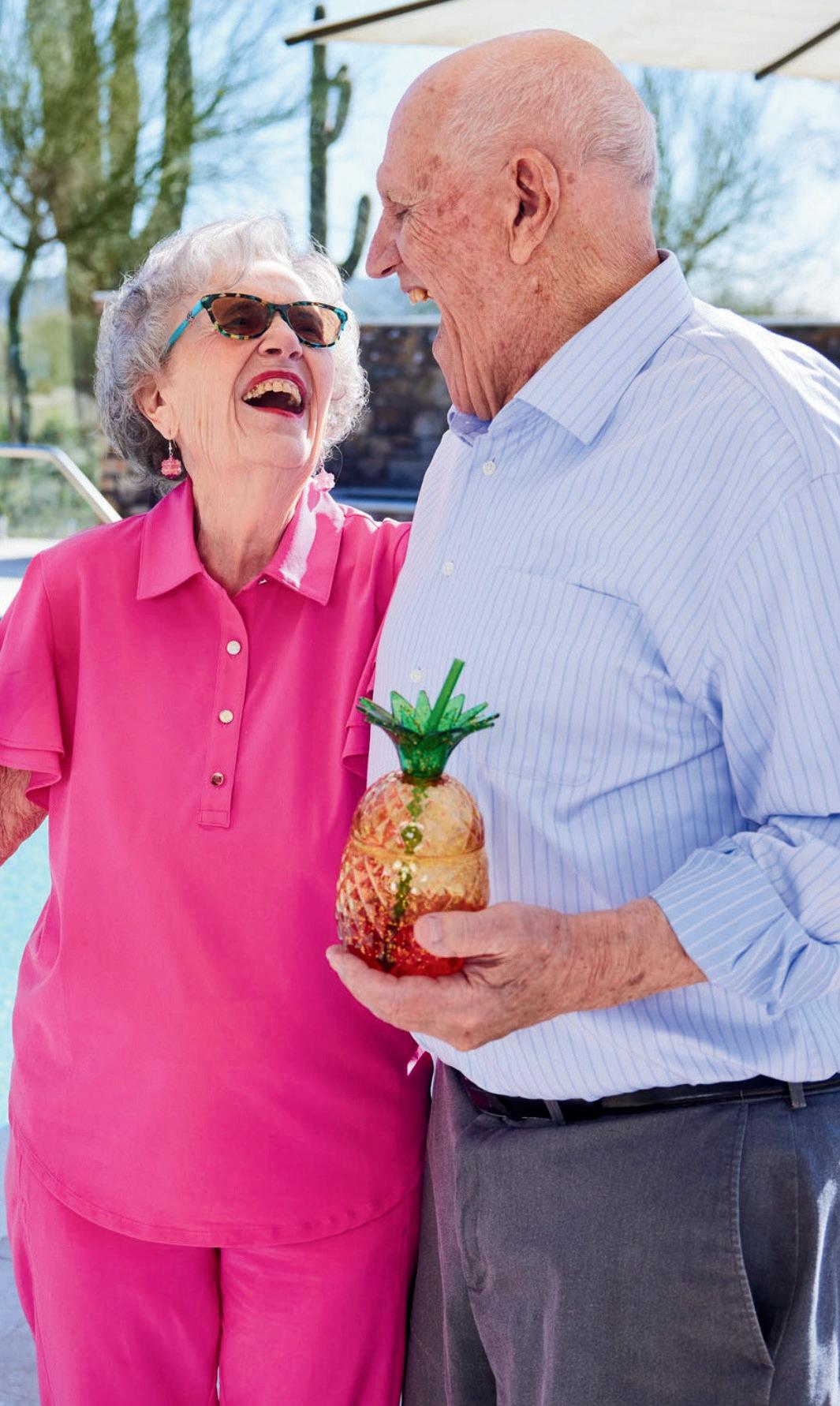
When Bob was practicing medicine, he started the day early in the morning and would often finish late at night, but he always came home for dinner. “We always ate as a family, all those years,” he said.
They had Shabbat dinner every Friday night. “And when the boys left home to go to college, whenever they came home and it was a weekend, it was a big to-do,” said Nancy.
Today, their eldest son is a physician, their middle son is a certified financial planner and private banker and the youngest, a mechanical engineer, modified Nancy’s brownie recipe and started the gourmet online bakery, Fairytale Brownies, which sells seven million brownies a year.
“We’re still a very close family,” said Bob. “Even with our boys, they are 64, 61 and 58, we close every conversation with ‘I love you.’”
They believe that their love for each other, family, friends and their community is what has brought stability and strength to their marriage. “When we get up in the morning, each of us has a purpose, which is important and significant,” Bob added.
The couple have their own interests and they still carve out time for dates, fulfilling the “Time to be alone as well as together”
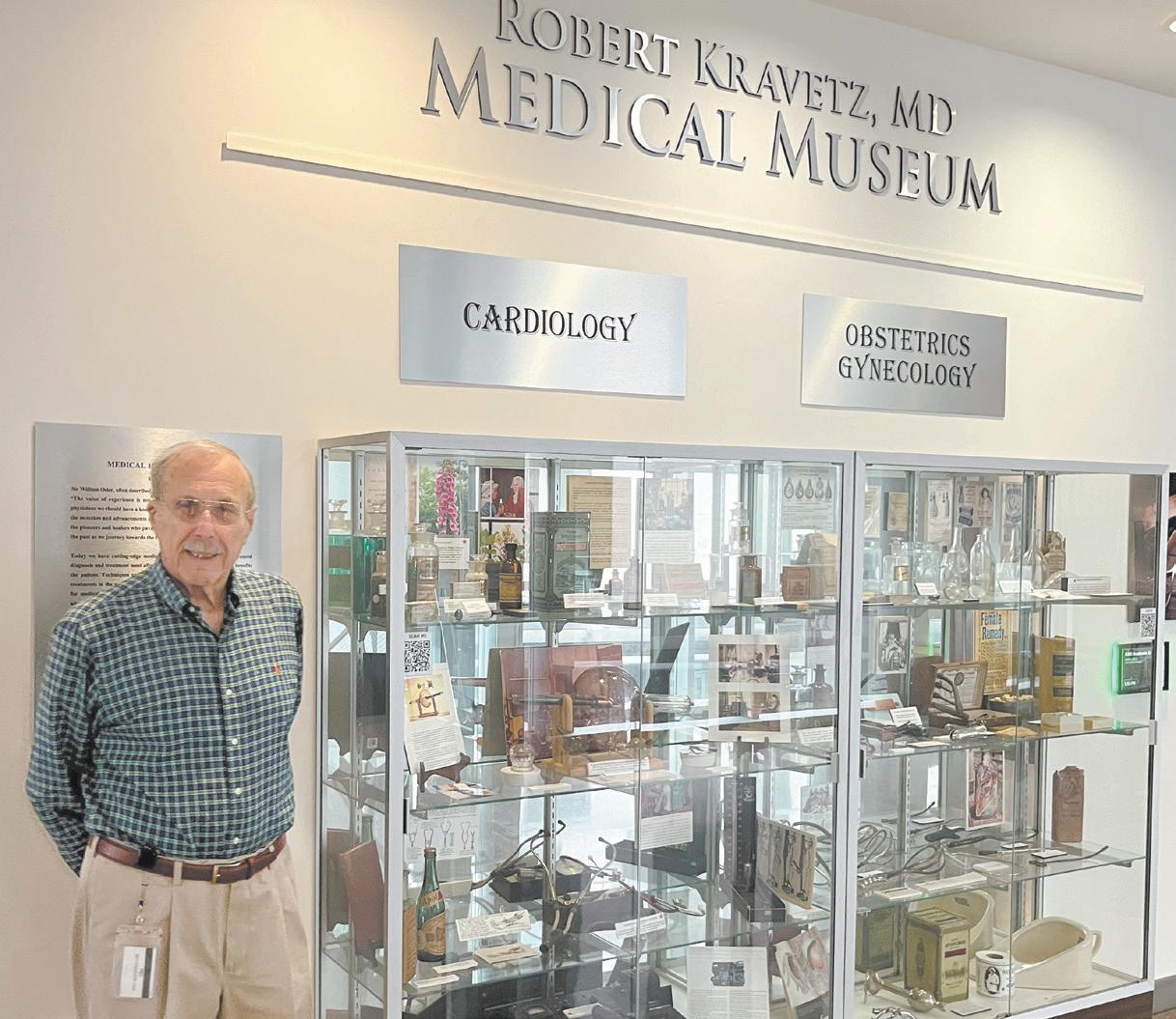
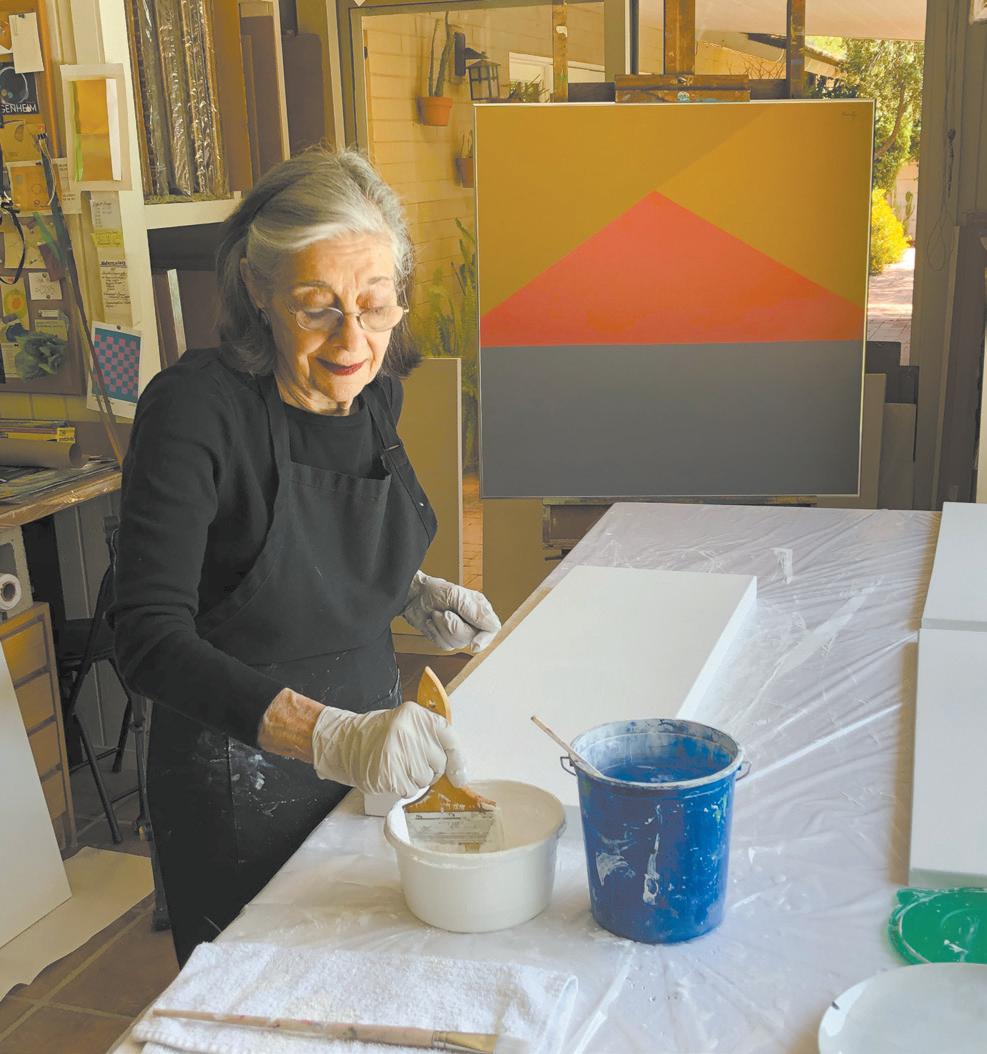
part of the advice list.
Nancy has limited her driving and Bob stopped driving altogether, but they will take a Lyft to go out to dinner or to the theater to see a play. Sometimes they like looking at the love letters they sent each when they were first married.
After their wedding, the couple lived apart for six months while Bob finished medical school. He would send Nancy a letter every day, paying extra for postage to have them delivered on Saturday and


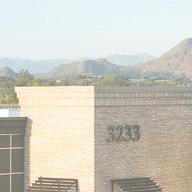
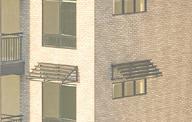
large never looked so good.
Sunday.
“I like reading the things that we were doing at the time, that we’ve totally forgotten,” said Nancy.
Nancy shared that when she showed the box of saved letters to her granddaughter she said, “Oh, Grandma, Grandpa wrote you love letters. My boyfriend didn’t do that. He never wrote me a love letter!”
Bob said that most of us live in one of two places: the past, which is often filled with thoughts of regret and the future,
which is not promised to anyone and filled with “what ifs” and worries. He and Nancy prefer to live in the present. “It is a gift to be enjoyed that some people never unwrap,” he said. “Every day, even at our age, is an opportunity for adventure and learning. Carpe diem.” JN
For more information, visit nancykravetz.com and drrobertkravetz.com.
High-class amenities, unmatched scenery, rich residences – what more could you want out of luxury retirement living? Just you wait.
At Clarendale Arcadia, independent living residents find all these features – and even more sophisticated services – right outside their doors. The opportunity to retire in style has never been easier – or felt better – until now.





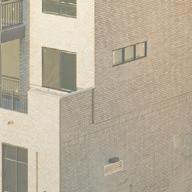
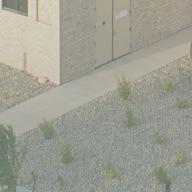
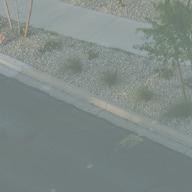


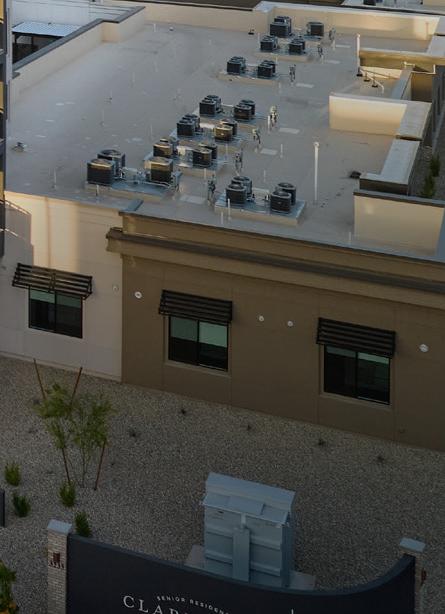

EXCITED TO LEARN MORE?
SCHEDULE A PERSONAL TOUR TODAY BY CALLING 480-608-9102.
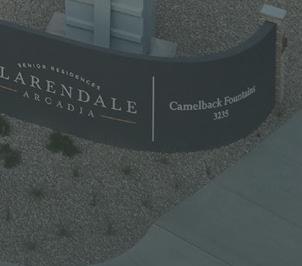
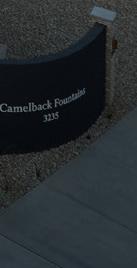
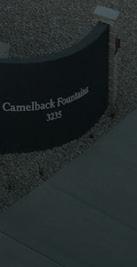



BOB ROTH | COLUMNIST

October was Ageism Awareness Month, a time to shine a light on a form of discrimination that often goes unnoticed or is silently accepted. Ageism, the marginalization of people based on their age, continues to pervade society, even as we make strides in combating other forms of discrimination. In a world that values youth and innovation, older individuals are often dismissed, ignored or outright overlooked. As someone who has experienced this firsthand, I can attest to the sting of feeling invisible simply because of age.
Ageism is not just a personal issue; it’s a societal challenge that affects millions of people across the United States. According to the U.S. Census Bureau, by 2034, older adults will outnumber children under 18 for the first time in history. This demographic shift underscores the growing importance of addressing ageism in our communities. In the workforce, the U.S. Equal Employment Opportunity Commission (EEOC) reports that agerelated discrimination claims accounted for 21.4% of all complaints filed in 2022 under the Age Discrimination in Employment Act (ADEA). Older workers often find themselves pushed out of the labor market or passed over for promotions due to stereotypes that equate age with a lack of productivity or adaptability. Arizona, home to a large and growing population of retirees and older adults, reflects these national trends. The state ranks among the top for retirement destinations, with 18% of its population being 65 years or older, a figure that continues to grow. Despite this, Arizona is not immune to the challenges posed by ageism. Studies show that older residents in Arizona experience higher rates of isolation, financial insecurity and health care access barriers, exacerbated by underlying ageist attitudes in the workforce and health care systems. Ageism in
health care remains a significant issue, where assumptions about an individual’s cognitive or physical abilities often lead to misdiagnosis or insufficient care for older adults, particularly in rural areas of the state.
In recent years, there has been a welcome rise in awareness surrounding diversity, equity and inclusion (DEI).
The DEI movement has made remarkable strides in addressing discrimination based on race, gender, sexual orientation and religion. Yet one demographic has been notably absent from the conversation: older adults. While DEI initiatives have been critical in addressing marginalization, there is a glaring oversight when it comes to ageism. Senior citizens, much like people of color, members of the LGBTQ+ community and those from diverse religious backgrounds, face systemic barriers that affect their quality of life. Unfortunately, this demographic often gets left behind in these conversations, even though they too experience exclusion and bias, whether in the workplace, in health care settings or even in day-to-day social interactions.
The good news is that awareness of ageism is slowly growing, and efforts to combat it are taking root. Various organizations are working to dismantle the stereotypes and biases associated with aging. AARP, for instance, has been at the forefront of the fight against age discrimination, advocating for policy changes and legal protections for older workers.
In the workplace, businesses are beginning to understand the value that older workers bring to the table. Companies are increasingly adopting age-inclusive hiring practices, recognizing that a multigenerational workforce can boost productivity, innovation and overall workplace culture. Author Ben Lytle, in his book “The Potentialist,” envisions a future where employers will increasingly hire older adults for two- or three-day work weeks. This shift, he suggests, will happen because many older adults haven’t saved enough for retirement, seek purpose and, most importantly, are reliable workers. Lytle emphasizes that this demographic consistently shows up, completes tasks thoughtfully, respectfully and in a timely manner — qualities highly
valued in today’s fast-paced workforce. Some organizations have also begun offering training on age bias, helping employees and management recognize and counteract ageist attitudes.
On the health care front, efforts are underway to combat ageism in medical treatment. Research from the National Institutes of Health (NIH) shows that ageist attitudes can negatively impact health care delivery, leading to poorer outcomes for older adults. In response, many medical schools are now integrating ageism awareness into their curricula to ensure future healthcare providers treat older patients with the respect and attention they deserve.
Media representation plays a significant role in shaping societal attitudes toward aging. Too often, older adults are portrayed as frail, out-of-touch or a burden. However, positive representations of aging are starting to emerge, highlighting the vitality and contributions of older generations. Shows like “Grace and Frankie” and movies like “The Intern” challenge ageist stereotypes and offer more nuanced, positive portrayals of older adults. But changing attitudes requires more than just media representation — it demands a societal shift in how we view aging. Older adults should not be seen as “less than” simply because of their age. Instead, they should be valued for their wisdom, experience and contributions to society. We must recognize that aging is not a flaw; it’s a natural part of life that
we will all experience.
As we move forward, it’s essential to build a society where people of all ages are valued, supported and included. This means stamping out ageism at every level — from the workplace to healthcare to social interactions. It also means including age in the broader DEI conversation, ensuring that older adults are not left behind in our pursuit of a more equitable world. In an aging society, this is not just a moral imperative; it’s a practical one. As we continue to live longer, healthier lives, we must ensure that every person, regardless of age, is treated with the dignity and respect they deserve. Only then can we truly create a society that is inclusive and supportive of all.
Ageism may be deeply ingrained, but it is not insurmountable. By raising awareness, challenging stereotypes and advocating for policy changes, we can build a world where people are valued not for their age but for who they are. JN
Bob Roth is the managing partner of Cypress HomeCare Solutions.


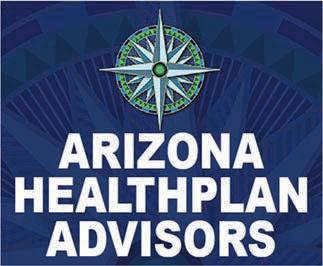




ANDREW SILOW-CARROLL | JTA
Paul Mendes-Flohr was introduced to the writings of the German-Jewish scholar and philosopher Martin Buber when he was 18 and volunteering on a kibbutz in Israel.
“Of course, I didn’t understand a word,” Mendes-Flohr told an interviewer in 2012.
Later, however, at Brandeis University, he had an opportunity to study Buber in a more rigorous fashion under the tutelage of Nahum Glatzer, an Austrian Jewish scholar and one of the founding figures of the Jewish studies department at the Massachusetts university.
“He took an interest in me and my work and introduced me not only to the writings of Buber, but the whole aura of German-Jewish thought — the earnestness, the urgency of modern Jewish thought as it took shape in Germany,” Mendes-Flohr recalled.
Mendes-Flohr not only came to understand Buber but became what a colleague, Brandeis historian Jonathan Sarna, called “the leading Martin Buber scholar of our time and a central figure in Modern Jewish
thought and history.”
Mendes-Flohr, who died Thursday, Oct. 24, at 83, served as editor in chief, along with Bernd Witte, of a 22-volume German edition of Buber’s collected works. Fellow scholar Robert Alter, in a New York Times review, called his 2019 book “Martin Buber: A Life of Faith and Dissent” a “scrupulously researched, perceptive biography of Buber that evinces an authoritative command of all the contexts through which Buber moved.”
Mendes-Flohr’s expertise extended well beyond Buber to include modern Jewish intellectual history, philosophy and religious thought. The 62 books he edited, wrote and co-wrote include studies of the Jewish anarchist Gustav Landauer; “The Jew in the Modern World, “ a standard text written with Jehuda Reinharz; and “Contemporary Jewish Religious Thought: Original Essays on Critical Concepts, Movements and Beliefs,” edited with Arthur A. Cohen.
When “Contemporary Jewish Religious Thought” appeared in 1987, it was hailed


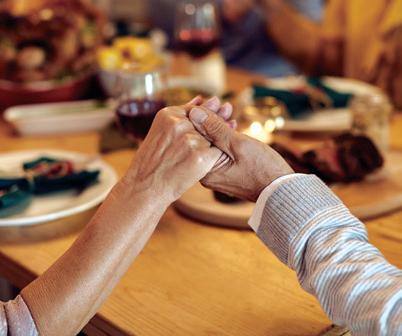
as a landmark survey of how Jewish thought had been shaped by modernity, the Holocaust and the creation of the state of Israel.
Mendes-Flohr, whose titles included professor emeritus of Jewish Thought at the Hebrew University and Dorothy Grant Maclear professor emeritus of modern Jewish history and thought at the University of Chicago Divinity School, was also highly regarded as a friend and mentor.
“I count among the great privileges and pleasures of my life the contact that I had with Paul over the past two decades,” Alan Flashman, a psychiatrist and friend of the scholar, wrote in an appreciation in the Times of Israel. Flashman recalled how Mendes-Flohr supported Flashman’s 2013 Modern Hebrew translation of Buber’s best-known work, “I and Thou.”
Rabbi Shmuly Yanklowitz, dean of Valley Beit Midrash in Scottsdale, recalled that Mendes-Flohr was a frequent and popular scholar-in-residence. “His teaching style was as rigorous as it was warmly inviting,” Yanklowitz recalled in a Facebook post. “His fascination with history and great literature of the past was balanced by his dreaming of a peaceful future.”
Paul Flohr was born in Brooklyn in 1941. He added his wife’s surname to his own when he and Rita Mendes, a photographer, were married after meeting at Brandeis. The couple moved to Israel in 1970 after he received his Ph.D. from Brandeis. There they raised two children, who, like his wife, survive him.
Mendes-Flohr joined the University of Chicago faculty in 2000, after teaching for 30 years at the Hebrew University of Jerusalem.
His books include “German Jews: A Dual Identity,” “Progress and its Discontents” (in Hebrew) and “Divided Passions: Jewish Intellectuals and the Experience of




Mendes-Flohr was also the editor of “A Land of Two Peoples: Martin Buber on Jews and Arabs.” Mendes-Flohr took to heart Buber’s notion of “I and Thou,” which describes the basis for genuine dialogue between individuals and between peoples and which Mendes-Flohr sought to apply to the Israeli-Arab conflict. In a 2022 essay for Sources Journal, “Why Is America Different?”, MendesFlohr also remained hopeful for Jewish life in the United States — famously described as the “city on the hill” — despite the country’s growing polarization and intolerance: Today, at a time when many harbor growing doubts about the promises of America, some historical perspective is in order: in view of the anguished and tragically ill-fated struggle for Jewish emancipation in Europe, American Jews, spared that ordeal, can both avoid complacency and express a healthy mistrust of the city even as they join in a robust song of thanksgiving for their uniquely pluralistic and prosperous home and the unprecedented opportunities it still affords.
Despite his academic accomplishments, what Mendes-Flohr’s students remember most “is his soft voice, warm smile, and earnest effort to personify the dialogical thought he studied,” Samuel Brody, a student and collaborator of Mendes-Flohr, wrote in the Forward.
“The most common word used to describe him, after ‘scholar,’ is mensch,” wrote Brody, associate professor in the Department of Religious Studies at the University of Kansas, using the Yiddish term for a kind, decent person. “At office hours, he would ask about his students’ families with such sincerity and persistence that they would sometimes forget what they had come to talk to him about.” JN


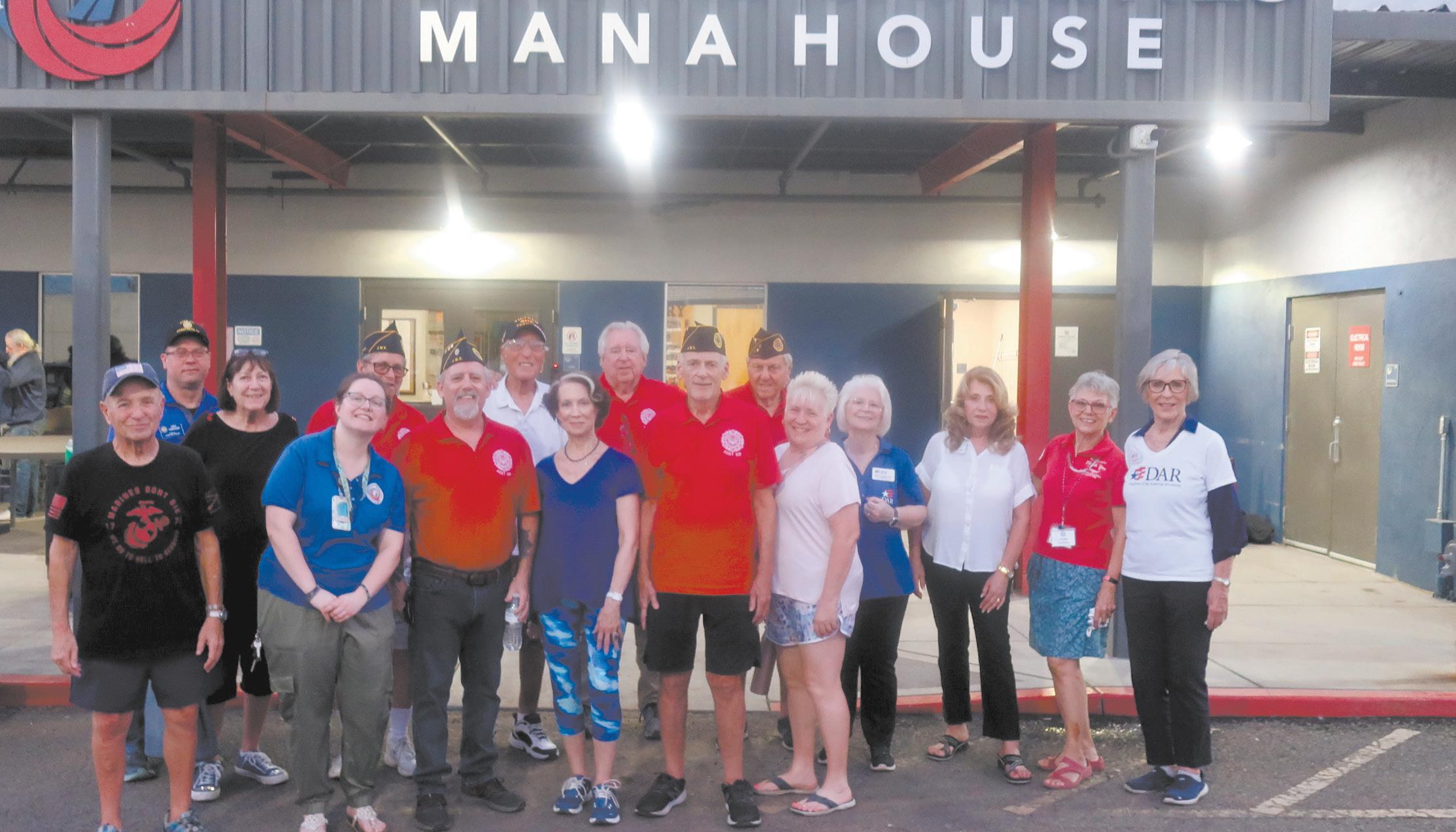
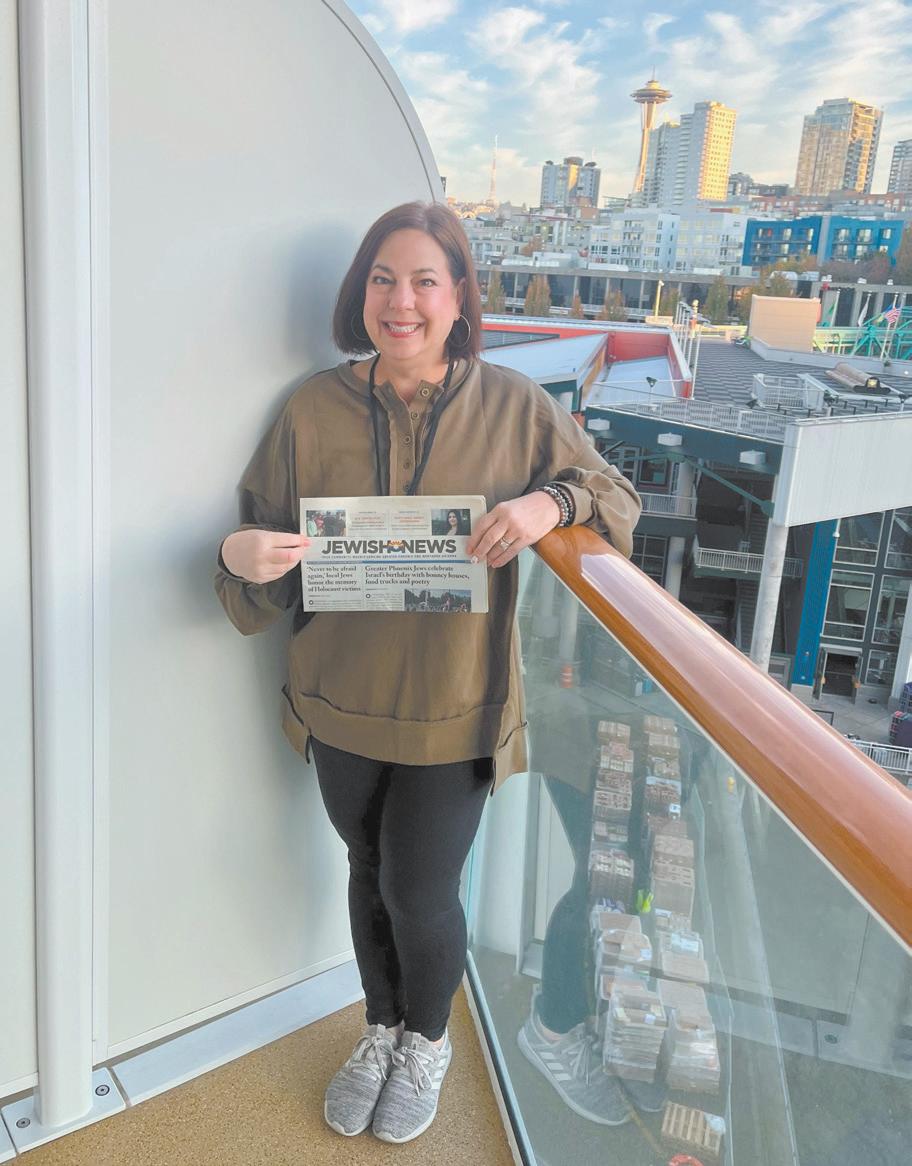
Denise Israel, left, and Rabbi Alicia Magal of the Jewish Community of Sedona and the Verde Valley sing "Lu Yehi," a Hebrew song that speaks of hope for peace during a commemoration service, Remembering Oct. 7, 2023, to honor those murdered in the Hamas attack on Israel last year.
Nineteen volunteers recently attended the annual Jewish War Veterans Post 619 BBQ for MANA (Marine, Army, Navy, Air Force) House Catholic Charities, a peer-run organization for up to 76 veterans experiencing homelessness. It helps stabilize veterans and find permanent housing for them.
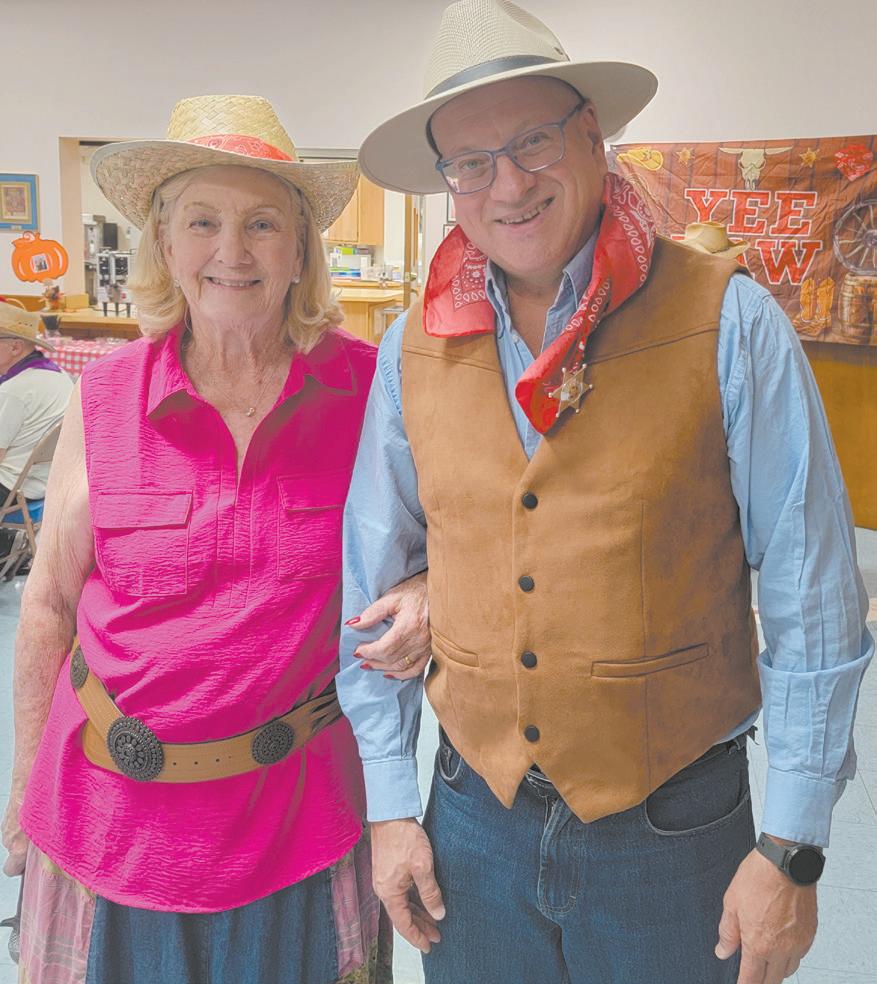
NowGen, a program of the Center for Jewish Philanthropy of Greater Phoenix that connects Jewish adults in their 20’s through 40’s in community, philanthropy and leadership, hosted another successful happy hour on Tuesday, Sept. 24, at RnR Gastropub in Scottsdale.
COURTESY OF NOWGEN
Gloria Bold, left, and Rabbi Dana Evan Kaplan at Temple Beth Shalom of the West Valley’s Western BBQ and Hoedown fundraiser on Sunday, Oct. 20.

Turning out for veterans
Shoshana Beran, left, and Nicole Pendergast became great friends participating in the Bureau of Jewish Education of Greater Phoenix’s (BJE) single parents’ zoom every month. Here they are together at the BJE’s Rosh Hashanah event for single parents.
Where is your Jewish News? Alaskan cruise edition
OF
Marcy Lewis, director of PJ Library in Phoenix, brought her copy of Jewish News on an Alaskan cruise.
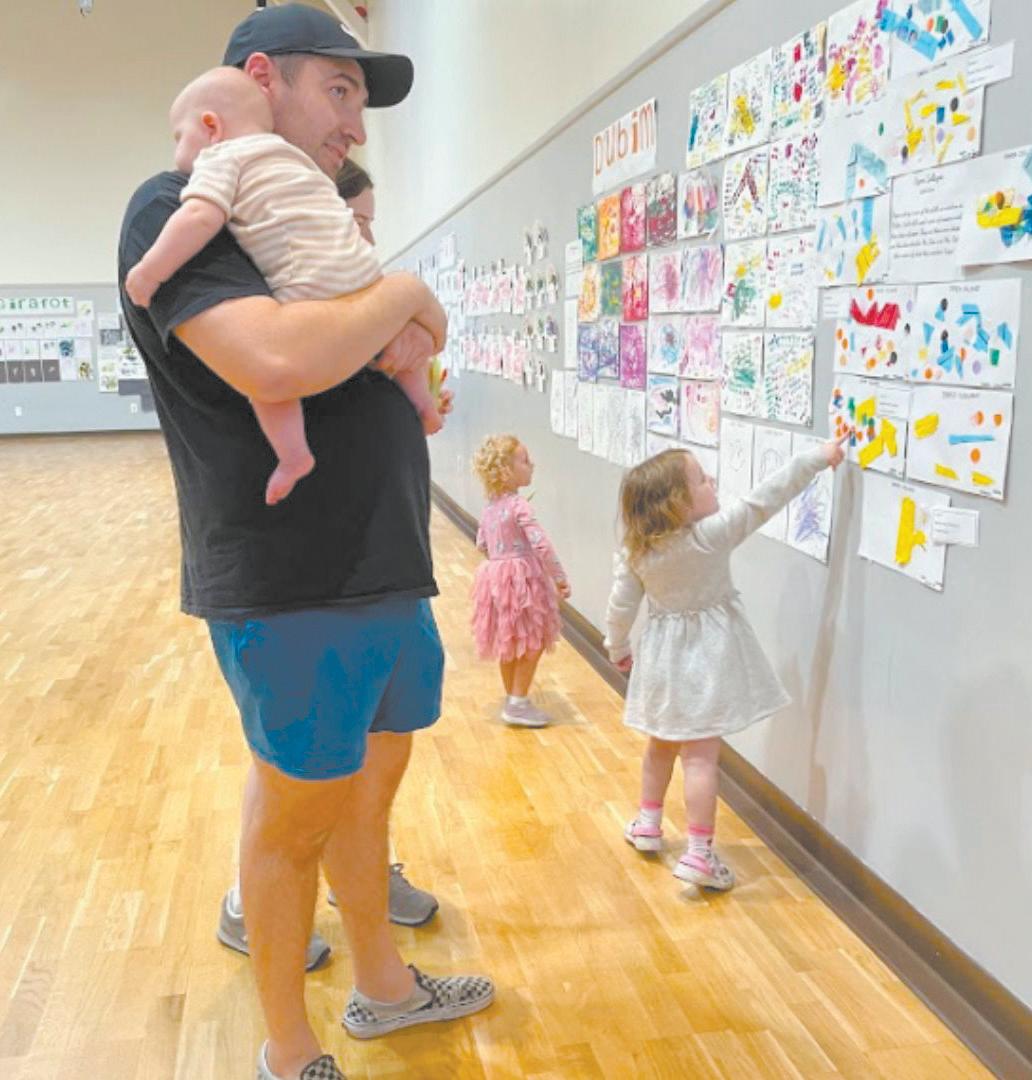
The Early Learning Center at the East Valley Jewish Community Center held an
On Monday, Oct. 7, Reverend Bruce Scott, left, director of program ministries for the Friends of Israel Gospel Ministries, presented Steve Hilton with a $5,000 gift for the Building a Legacy of Hope Capital Campaign. This is the first significant gift from the interfaith community in support of the Hilton Family Holocaust Education Center, which should break ground next year.
on Sept. 18 that featured the children’s artwork.
OF
This COMMUNITY page features photos of community members around the Valley and the world. Submit photos and details each week to editor@jewishaz.com by 10 a.m. Monday.
FRIDAY AND SATURDAY, NOV. 15 & 16
Shabbat Unplugged and Community Concert with Dan Nichols: 5:30 p.m. Friday; 6 p.m. Saturday. Temple Chai, 4645 E. Marilyn Road, Phoenix. Join Phoenix Jewish community organizations and Temple Chai for events with Jewish rock musician and founder of the band E18hteen, Dan Nichols. There will also be a Musical Torah Study Experience on Nov. 16 at 10:30 a.m. For more information, visit templechai.com.
FRIDAY, NOV. 8
Single & Mingle: 5:30 p.m. Temple Emanuel of Tempe, 5801 S. Rural Road, Tempe. Join TEOT and enjoy a glass of wine, eat and play games while meeting new friends. Cost: $18 per adult. For more information, visit emanueloftempe. org/form/mingle-and-single.html.
SUNDAY, NOV. 10
Café Europa: 1-3 p.m. Congregation Beth Israel, 10460 N. 56th St., Paradise Valley. Join the Phoenix Holocaust Association, survivors and their family and friends for a meal and entertainment. For more information, visit phxha.com.
Ruhama’s Cooking Demo: 2 p.m. Location provided one week prior to the event to registered participants. Join Chabad of Scottsdale Jewish Women’s Circle for a cooking demonstration by Ruhama Shitrit, social media influencer and food blogger behind the Instagram page RuhamasFood, which has more than 600,000 followers. For more information, visit chabadofscottsdale.org/Ruhama.
Smile on Seniors Benefit Event: 5-6 p.m. Scottsdale Hangar One, 15220 N. 78th Way, Scottsdale. Join Smile on Seniors for their benefit event. For more information, contact info@sosaz.org.
MONDAY, NOV. 11
BJE Library Story Time: Meet the Author: 1:30 p.m. Ina Levine Jewish Community Campus, 12701 N. Scottsdale Road, Scottsdale. Join the Bureau of Jewish Education of Greater Phoenix for a reading of “The Ruffington Dog Show” by author Hayley Rose. Cost: Free. For more information, visit bjephoenix.org/ community-celebrations.
TUESDAY, NOV. 12
The Visual Diary of Joan Brown: 10-11:30 a.m. East Valley Jewish Community Center, 908 N. Alma School Road, Chandler. Join the EVJCC and Phoenix Art Museum Master Docent Susan McGee for an interactive session into Brown’s creative process. For more information, visit evjcc.org/tuesdays.
WEDNESDAY, NOV. 13
Professor Gary Rendsburg: 4-6 p.m. Beth Emeth Congregation of the West Valley, 13702 W. Meeker Blvd., Sun City West. Join Beth Emeth for “In Search of Ancient Israel” by Gary Rendsburg, professor of Jewish Studies at Rutgers University. Cost: $20; RSVP by Nov. 7. For more information, contact 623-584-7210.
Evening of Song, Dance and Challah: 6 p.m. Phoenix Hebrew Academy, 515 E. Bethany Home Road, Phoenix. Women and girls are invited to join The Shabbat Project Arizona to celebrate the 10th anniversary of the Worldwide Shabbos Project by making challah and tasting Shabbat desserts. Featuring entertainment by
celebrity singer Franciska and other local talent. Cost: $36 per adults, $10 for children. For more information, visit shabbatprojectaz.org.
THURSDAY, NOV. 14
Holiday Reflections: A Night of Storytelling: 6-7 p.m. Arizona Jews for Justice, 7580 E. Gray Road #102, Scottsdale. Join Arizona Jews for Justice for an evening of storytelling and community. Cost: Free. For more information, visit arizonajewsforjustice.org.
Visiting the Past: 6:30-9 p.m. Online. Join the founders of 3GAZ, Jennifer Sosnow and Adena Bernstein, as they each share their experiences about their trips to Poland. Cost: Free. For more information, contact 3gaz@phxha.com.
SUNDAYS
B.A.G.E.L.S: 9-11 a.m.; last Sunday of the month. Valley of the Sun Jewish Community Center, 12701 N. Scottsdale Road, Scottsdale. Grab a bagel and a cup of coffee at Bagels And Gabbing Every Last Sunday and enjoy some time with your friends and make new ones. You must register to attend. Bagels and coffee will be provided. Cost: Free for members, $5 for guests. For more information and to register, visit vosjcc.org.
THURSDAYS
Storytime at Modern Milk: 9:30 a.m. Modern Milk, 13802 N. Scottsdale Road, #163, Scottsdale. Storytime for babies, toddlers and preschoolers. Integrates children’s books and songs while giving parents new ideas for play. Cost: $5. For more information and to register, visit modernmilk.com/after-baby.
SUNDAYS
Chassidus Class: 9 a.m. Online. Learn about the Chasidic movement with Rabbi Yossi Friedman. Use this link: ChabadAZ.com/LiveClass. Cost: Free. For more information, visit chabadaz.com.
Jewish War Veterans Post 210: 10 a.m. Online. Any active duty service member or veteran is welcome to join monthly meetings, every third Sunday. Cost: Free. For more information, email Michael Chambers at c365michael@yahoo.com.
Sundays are for the Family Weekly Feed: 3-5 p.m. Tempe Beach Park, 80 W. Rio Salado Pkwy., Tempe. Join Arizona Jews for Justice and AZ HUGS for the Houseless every Sunday to serve food to those in need. For more information and to RSVP, email Arizonajews4justice@ gmail.com.
Anxiety in the Modern World: 6 p.m. Online. Learn the secrets of the Torah for living stressfree in the current environment with Rabbi Boruch of Chabad of Oro Valley. Cost: Free. Use
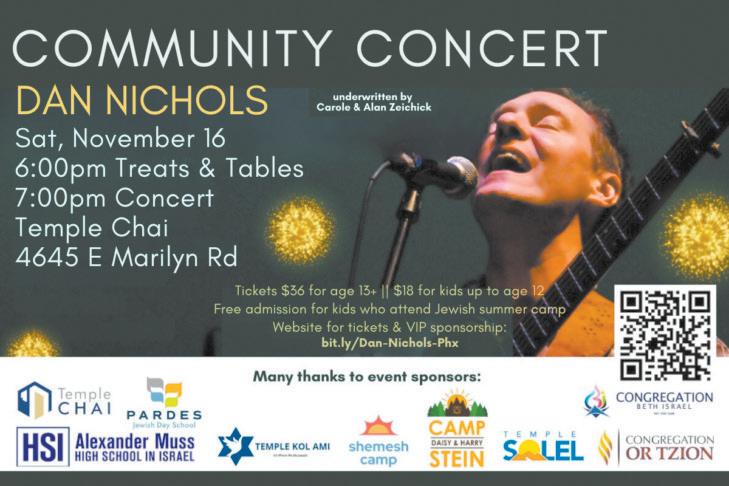
this link: zoom.us/j/736434666. For more information, visit chabadaz.com.
MONDAYS
Pomegranate Guild of Judaic Needlework, Desert Cactus Chapter: 10 a.m. The Oasis at Sagewood, 4555 E. Mayo Blvd., Phoenix. The guild meets the third Monday of the month, adjusted when necessary to accommodate Jewish holidays. For more information, visit pomegranateguild.org.
Mahjong: 1:30-3:30 p.m. East Valley Jewish Community Center, 908 N. Alma School Road, Chandler. Come play mahjong each week. For all levels. Cost: Free; registration required at evjcc.org/mahjong.
Ethics of Our Fathers: 7 p.m. Online. Learn with Rabbi Zalman Levertov. Use this link: bit. ly/2Y0wdgv. Cost: Free. For more information, visit chabadaz.com.
Partners in Torah: 7:30 p.m. Online. Join a growing group of inspired learners with Project Inspire. Cost: Free. Use this link: us04web.zoom. us/j/3940479736#success, password is 613. For more information, email Robin Meyerson at robin@projectinspireaz.com.
Single Parent Zoom: 8 p.m. First and third Monday of every month. Join The Bureau of Jewish Education’s Family University single parents’ group for those looking to form friendships and build their support system with like-minded people. For more information or to register, visit bjephoenix.org/family-university.
TUESDAYS
Let’s Knit: 1:30 p.m. Ina Levine Jewish Community Campus, 12701 N. Scottsdale Road, Scottsdale. Share the pleasure of knitting, crocheting, etc. outside the social hall in the campus. Can’t knit? They will teach you! Every level welcome. Cost: Free. For more information, visit vosjcc.org.
Maintaining an Upbeat Attitude: 7 p.m. Online. A class exclusively for people in their 20s and 30s, learn how Jewish Mysticism can help with your attitude with Rabbi Shlomy Levertov. Use this link: JewishParadiseValley.com/YJPclass. Cost: Free. For more information, visit chabadaz.com.
WEDNESDAYS
Torah Study with Temple Beth Shalom of the West Valley: 11 a.m.-12:30 p.m. Online. Weekly study group explores that week’s portion and studies different perspectives and debates the merits of various arguments. Intended for adults, Torah study is open to students of all levels. For more information, contact the TBS office at 623-977-3240.
Torah Study with Chabad: 12 p.m. Online. Take a weekly journey of Torah with Rabbi Yossi
Cost: Free. For more information, visit chabadaz.com.
The Thirteen Petalled Rose: 1 p.m. Online. Kabbalah class that studies “The Thirteen Petalled Rose” by Rabbi Adin Even-Israel Steinsaltz, focusing on the many concepts of Kaballah and Jewish Mysticism and applying them to everyday life. For more information or to join, visit cbtvirtualworld.com.
Grief Support Group: 5-6 p.m. Online via Zoom. Therapist Susan Charney MCW, LCSW, leads a grief support group every first and third Wednesday of the month virtually for individuals experiencing the loss of an adult child or sibling. In lieu of any fees for these sessions, donations to Temple Solel are appreciated. For more information, contact susancharneycounseling@ gmail.com.
History of the Jews: 7 p.m. Online. Learn the Jewish journey from Genesis to Moshiach with Rabbi Ephraim Zimmerman. Use this link: zoom. us/j/736434666. Cost: Free. For more information, visit chabadaz.com.
JACS: 7:30-8:30 p.m. Online. Zoom support group for Jewish alcoholics, addicts and their friends and family on the first and third Wednesdays of the month. Cost: Free. For more information, email jacsarizona@gmail.com or call 602-692-1004.
THURSDAYS
Ladies Torah & Tea: 10:30 a.m. Online. Learn about the women of the Torah with Mrs. Leah Levertov. Use this link: ourjewishcenter.com/ virtual. Cost: Free. For more information, visit chabadaz.com.
Talmud - Maakos: 11 a.m. Online. Learn with Rabbi Shlomy Levertov. Cost: Free. Use this link: JewishParadiseValley.com/YJPclass. For more information, visit chabadaz.com.
The Science of Everything: 11 a.m. Online. Explore the most fundamental work of Chassidut: the Tanya, with Rabbi Boruch. Use this link: zoom.us/j/736434666. Cost: Free. For more information, visit chabadaz.com.
Mindfulness Gatherings: 12 p.m. Online. Hosted by Hospice of the Valley via Zoom. Cost: Free. To join by phone, dial 1-253-215-8782, meeting ID 486 920 2119#, to get the Zoom link or for further questions contact Gill Hamilton at ghamilton@hov.org or 602-748-3692.
Weekly Mahjong: 1-3 p.m. Temple Solel, 6805 E. McDonald Drive, Paradise Valley. Join Temple Solel each Thursday afternoon for mahjong. Lessons available for beginners. Cost: Free. RSVP via email to dottiebefore@gmail.com so they know how many tables to set up.
Teen Discussions: 7-8:30 p.m. Online. Learn with Rabbi Tzvi Rimler. Use this link: cteen.
clickmeeting.com/east-valley. Cost: Free. For more information, visit chabadaz.com.
SATURDAYS
Saturday Mindfulness Gatherings: 9:30 a.m. Online. Hosted by Hospice of the Valley. To join by phone, dial 1-253-215-8782, meeting ID 486 920 2119#. To get the Zoom link or for more information, contact Gill Hamilton at ghamilton@hov.org or 602-748-3692.
Book Discussion: 1:30-2:30 p.m. Online. Join Or Adam Congregation for Humanistic Judaism on the third Saturday of every month for a book discussion. For more information and to register, contact oradaminfo@gmail.com.
Shabbat
FRIDAYS
Shabbat in the Park: 10-11 a.m. Cactus Park, 7202 E. Cactus Road, Scottsdale. Join the Bureau of Jewish Education of Greater Phoenix monthly for music, parachute play, crafts and a family Shabbat experience. For more information, visit bjephoenix.org.
Welcome Shabbat: 11-11:30 a.m. Online. Celebrate Shabbat with the JFCS Virtual Center for Senior Enrichment. Each week a different guest host will lead the program with song and celebration. Cost: Free. For more information, visit jfcsaz.org/cse.
Shabbat at Beth El: 7:15 a.m. and 5:45 p.m on Zoom; 9:30 a.m. at Beth El Phoenix, 1118 W. Glendale. Ave., Phoenix or livestreaming on YouTube. Celebrate Shabbat with songs, blessings and teachings with Rabbi Stein Kokin the first Friday of every month. Special guests will be welcoming Shabbat during the remainder of the month. For more information or to join, visit bethelphoenix.com.
Erev Shabbat Service: 5:30 p.m. Online. Rabbi Alicia Magal will lead a service livestreamed for members of the Jewish Community of Sedona and the Verde Valley. Cost: Free. For more information and to obtain the Zoom link, visit jcsvv. org/contact.
Shabbat Services: 5:30 p.m. nosh, 6:15 p.m. service; morning service has varying dates and times. Temple Chai, 4645 E. Marilyn Road, Phoenix. For more information, contact Joan Neer at jneer@templechai.com.
Shabbat Services with Sun Lakes: 5:30-6:15 p.m. Sun Lakes Chapel, 9240 E. Sun Lakes Blvd. North, Sun Lakes. Sun Lakes Jewish Congregation conducts this twilight service on Aug. 9. For more information, contact 480-612-4413.
Pre-Shabbat Kiddush Club: 6 p.m. Online. Say Kiddush with Rabbi Mendy Levertov. Cost: Free. Use this link: ourjewishcenter.com/virtual. For more information, visit chabadaz.com.
Shabbat Services: 6 p.m; 9:30 a.m. Congregation Or Tzion, 16415 N. 90th St., Scottsdale. Services are also live streamed at otaz.org/ livestream. For more information about services, events and membership, visit congregationortzion.org or call 480-342-8858.
Shabbat Service: 6-7 p.m.; Oneg at 5:15 p.m. Temple B’rith Shalom, 2077 Brohner Way, Prescott. Join Temple B’rith Shalom for a musical and spiritual Shabbat service. For more information, visit brithshalom-az.org.
First Friday Shabbat Services: 6:15 p.m.; Oneg at 7:15 p.m. Valley Unitarian Universalist, 6400 W. Del Rio St., Chandler. Join Congregation NefeshSoul for Friday night services the first Friday of each month in the sanctuary building of Valley Unitarian Universalist. For
more information, contact Jim Hoffman at 480-329-3316.
Shabbat Services: 6:15 p.m; 10 a.m. Congregation Beth Israel, 10460 N. 56th St., Scottsdale. Services held in the Goldsmith Sanctuary. Participants must pre-register by Thursday at 5 p.m. Priority will be given to members first and then guests. If there are more requests than available seats a lottery system will be used. For more information or to make a reservation, visit cbiaz.org/shabbat-services.
Kabbalat Shabbat and/or Shabbat morning service: 6:30 p.m.; 10 a.m.; dates vary. Congregation Kehillah, 5858 E. Dynamite Blvd., Cave Creek. Join Rabbi Bonnie Sharfman and cantorial soloists Erica Erman and Scott Leader either in person or via Zoom. For safety reasons, please register ahead of time. For dates, visit congregationkehillah.org/event/. Register by emailing info@congregationkehillah.org.
Shabbat Services: 7 p.m. Temple Beth Shalom of the West Valley, 12202 N. 101st Ave., Sun City. Services are followed by an Oneg. Services are live-streamed on YouTube. For more information and to get the YouTube link, visit tbsaz.org or call 623-977-3240.
Shabbat Services with Beth Ami Temple: 7 p.m. Gloria Christi Federated Church, 3535 E. Lincoln Dr., Paradise Valley. Rabbi Alison Lawton and Cantorial Soloist Michael Robbins lead Shabbat services twice a month. For more information, visit bethamitemple.org.
Third Friday Shabbat: 7-9 p.m. Group meets at a North Scottsdale location. The Desert Foothills Jewish Community Association hosts a Shabbat service followed by a program. Contact 602-487-5718 for more information.
MONDAYS
Fitness Xpress Series with Zoe: 11-11:30 a.m. Online. Presented by JFCS Center for Senior Enrichment. Workout features weight and band exercises as well as yoga poses. Exercises will be demonstrated standing, but can also be done sitting in a chair. Cost: Free. For more information, visit jfcsaz.org/cse.
Sip & Schmooze: 11 a.m. milk + honey, 12701 N. Scottsdale Road, Scottsdale. Sip on kosher coffee or tea, enjoy a pastry and schmooze every second Monday of the month. RSVP appreciated to chani@sosaz.org or 602-492-7670. For more information, visit sosaz.org.
TUESDAYS
Movie Discussion Group: 11 a.m. Online. Join Smile on Seniors on the third Tuesday of every month hosted by Issy Lifshitz. Cost: Free. For full details and the movie of the month visit sosaz.org/virtual or email Rabbi Levi Levertov at levi@sosaz.org.
WEDNESDAYS
Fitness Fun with Zoe: 10-10:45 a.m. Online. Presented by JFCS Center for Senior Enrichment. Workout features light chair exercises with optional weights. Cost: Free. For more information, visit jfcsaz.org/cse.
THURSDAYS
Memory Cafe: 10-11 a.m. first Thursday; 1-2 p.m. third Thursday. Online. Presented by Jewish Family & Children’s Service. Program for those with changes in their thinking or memory, mild cognitive impairment due to Alzheimer’s disease or a related disorder, along with their care partners. For more information, visit jfcsaz.org/our-services/olderadult-services/memory-cafe/.
FRIDAYS
Welcome Shabbat: 11-11:30 a.m. Online. Celebrate Shabbat with the JFCS Virtual Center for Senior Enrichment. Each week a different guest host will lead the program with song and celebration. Cost: Free. For more information, visit jfcsaz.org/cse.
OBITUARY
BRADLEY SHER
Musical Friday: 12:30 p.m. Online. Join Smile on Seniors on the first Friday of every month for a musical presentation. Cost: Free. For full details visit sosaz.org/virtual or email Rabbi Levi Levertov at levi@sosaz.org. JN
Bradley Sher of Phoenix, died on Oct. 18, 2024. He was 51 and was born in Scottsdale.
Bradley was preceded in death by his father, Robert Sher; and is survived by his mother, Suzanne Sher; his son, Brandon Brady; his sister, Wendy Sher; and three grandchildren.
Services were held on Oct. 22, 2024, at Mt. Sinai Cemetery and officiated by Rabbi Norman Roman.
Donations in his name can be made to Hospice of the Valley or the National Brain Tumor Society. JN
BAR MITZVAH

Alexander Benjamin Lipschultz became a bar mitzvah on Nov. 2, 2024, at Congregation Beth Israel. He is the son of Naomi and Rabbi Jeffrey Lipschultz of Phoenix.
Alexander’s grandparents are Shirley Grossman of Phoenix and the late Charles Grossman; Marilyn Mitchell and Donn Kessler of Phoenix.
For his mitzvah project, Alexander donated hair to Locks of Love and volunteers at events held by Gesher Disability Resources. JN

Corinne Joy Bagatell, 95, passed away on October 25, 2024, surrounded by two loving daughters and a granddaughter.
Corinne, known by many as Joy, was born in the Bronx, New York, on June 20, 1929. The adored only daughter of Irving and Pearl Fellerman, she left home at age 16 to study at Cornell University. After graduating, she completed a Master of Social Work degree at Columbia University, focusing much of her career on supporting children and families.
At Cornell, Joy met the love of her life, Fillmore Bagatell, to whom she was married 62 years. As she raised her own five children, Joy worked as a social worker, specializing in adoption and foster care. After living in Cleveland, Ohio, and Westfield, New Jersey, the family moved in 1973 to Phoenix, where Joy resided for the next 50 years.
In Phoenix, Joy served as a caseworker and counselor at Jewish Family and Children’s Service. After retiring, she worked with youth as a volunteer and mediator. In retirement, Joy and Fill traveled the world, and later made their home at The Terraces of Phoenix, where Joy was actively engaged in the community.
Joy had a friendliness and warmth that fitted her name well. She was deeply interested in people, listening to and asking questions that could draw them out to share their stories. Joy enjoyed learning, reading, exercising and spending time with her family.
“Grandma Joy” was the loving mother of five children, grandmother of eight and great-grandmother of four. In her last years, she lived close to her daughters in the Durham-Chapel HIll area of North Carolina. She is survived by her children Carrie Bagatell, Sharon Bagatell, Nancy Bagatell, Dan Bagatell and Rochelle Bagatell.
Graveside services were held in Phoenix on Thursday, October 31, at Beth El Cemetery, with Rabbi Michael Wasserman of The New Shul officiating. Friends wishing to honor Joy’s memory may make a donation to Jewish Family and Children’s Service (jfcsaz.org).





April

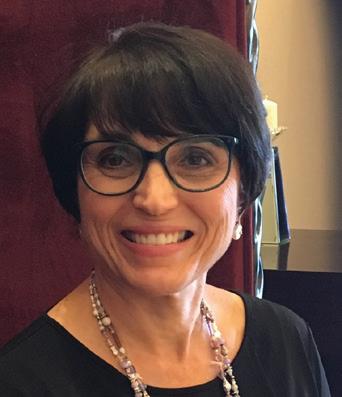
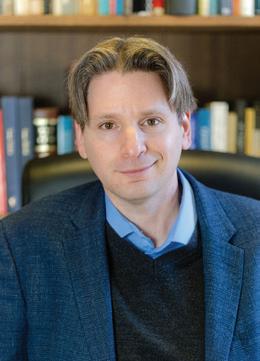




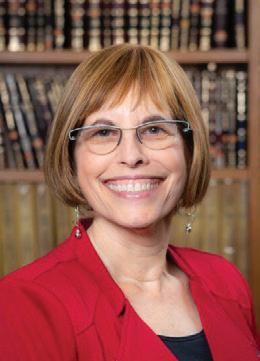



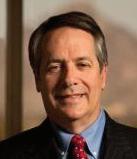


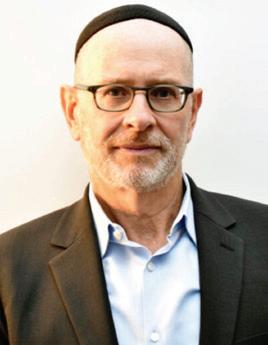




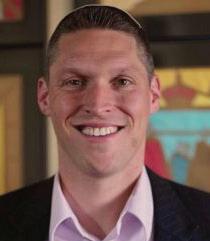




Valley Beit Midrash wishes everyone a shana tovah, a happy new year filled with joy and love. We invite you to join us in pursuit of improving lives in our communities through transformative learning and action. Here’s how you can plug into our work this year:
1. Learn with us at our upcoming classes. We have multiple pluralistic o erings each week and options for both virtual or in-person learning.
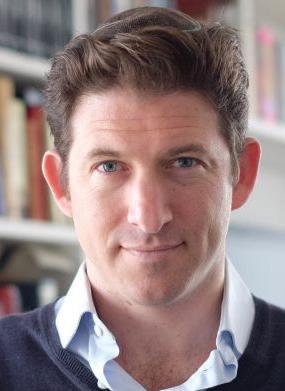

2. Serve with us and volunteer with Arizona Jews for Justice to help uplift the most vulnerable members of our community.

3. Reach out if you are looking for internship or fellowship opportunities for teens and young adults. We would be thrilled to tell you more about our leadership development programs.

Israelis and Diaspora Jews are experiencing the upheavals caused by the October 7 massacre in di erent ways, but we share trauma and deep unease about the future. How will Israel emerge from the crisis? What changes should we hope for in Israeli society? The Middle East? The American Jewish-Israeli relationship?
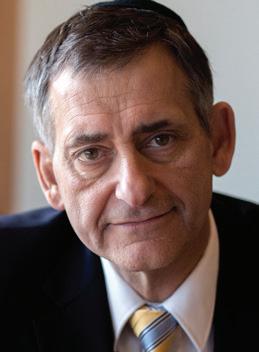
4. Become a Legacy donor. By joining the Jewish Education Legacy Society of Valley Beit Midrash you will ensure VBM has the ability to provide engaging learning opportunities and save lives in our communities for many years to come.
We hope this year will be a time of renewal and growth and that we will experience many joyful moments together in the year ahead.









